
SEADS 2023 Speakers
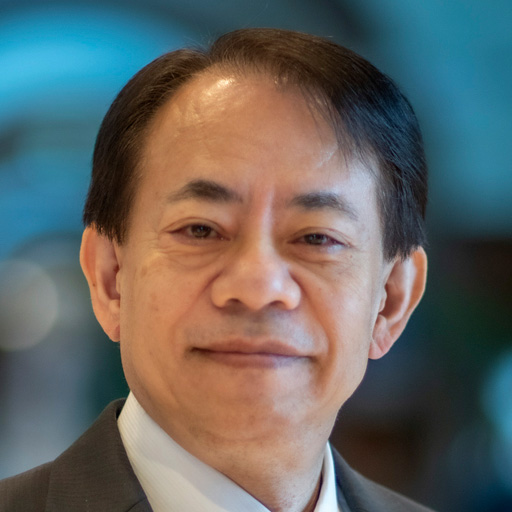
Masatsugu Asakawa is the President of the Asian Development Bank (ADB) and the Chairperson of ADB’s Board of Directors. He was elected President by ADB’s Board of Governors and assumed office on 17 January 2020. In August 2021, he was reelected for a 5-year term starting on 24 November 2021.
Under Mr. Asakawa’s leadership, ADB made significant contributions to the region’s COVID-19 pandemic response and recovery planning with a $20 billion comprehensive response package and $9 billion Asia Pacific Vaccine Access Facility. He also played a key role in rolling out a series of new and innovative financing initiatives—including an Energy Transition Mechanism—to spur the region’s low-carbon development and elevated ADB’s 2030 cumulative climate financing ambition to $100 billion as ADB continues to focus on the battle against climate change.
Prior to joining ADB, he served as Special Advisor to Japan’s Prime Minister and Minister of Finance, and has a close-to-four decades’ career at the Ministry of Finance with diverse professional experience that cuts across both domestic and international fronts.
In the immediate aftermath of the Global Financial Crisis, Mr. Asakawa, in his capacity as Executive Assistant to Prime Minister Taro Aso, took part in the first G20 Leaders’ Summit Meeting in November 2008. He was instrumental in orchestrating a globally coordinated financial package to abate the financial crisis, including a $100 billion loan from Japan to the International Monetary Fund (IMF). Then in 2016, in his capacity as Vice Minister of Finance for International Affairs, he took on a leading role for the G7 Finance Ministers and Central Bank Governors’ meeting in Sendai under the Japanese presidency, where a sustainable and inclusive development agenda was extensively discussed.
Most recently, he served as Finance Deputy for the G20 meetings under the Japanese presidency, playing a pivotal role for the success of the G20 Osaka Summit as well as the G20 Finance Ministers and Central Bank Governors’ meeting in Fukuoka. Some of his outstanding achievements in Osaka include the endorsement by the G20 Leaders of the “G20 Principles for Quality Infrastructure Investment” and the “G20 Shared Understanding on the Importance of UHC Financing in Developing Countries”. Before these, he had occupied various prominent positions within the Finance Ministry, including director positions in charge of development policy issues, foreign exchange markets, and international tax policy.
Mr. Asakawa’s professional experience extends beyond the realms of the Japanese government. Most notably, he served as Chief Advisor to ADB President Kimimasa Tarumizu between 1989 and 1992, during which time he spearheaded the creation of a new office focused on strategic planning. Also, he had frequent engagement with the Organisation for Economic Co-operation and Development in such positions as Chair for Committee on Fiscal Affairs (2011–2016). Furthermore, he was a senior staff at the Fiscal Affairs Department of the IMF (1996–2000). In the meantime, he gave lectures as Visiting Professor at the Graduate School of Economic Science, Saitama University (2006–2009), and at the Graduate School of Arts and Sciences, University of Tokyo (2012–2015).
Mr. Asakawa obtained his BA from University of Tokyo (Economics Faculty) in 1981, and MPA from Princeton University, USA, in 1985.
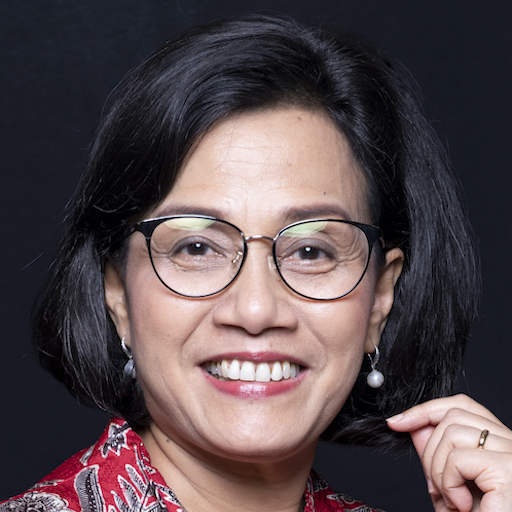
Sri Mulyani Indrawati is the Minister of Finance of Indonesia, currently on her second term—having first been appointed in 2016 and then re-appointed in 2019—under the administration of Indonesia President Joko Widodo. She also served as Indonesia’s coordinating minister of economic affairs in 2008, continuing her role as finance minister since 2005, under the administration of former Indonesia President Susilo Bambang Yudhoyono.
As finance minister, Ms. Indrawati has achieved macroeconomic stability, maintained prudent fiscal policies, lowered borrowing costs, and managed debt. She was also instrumental in implementing fundamental reforms in the Ministry of Finance, and has been responsible for sustaining investor confidence in the country.
Ms. Indrawati also serves as co-chair of the World Economic Forum on ASEAN, co-chair of the Pathways for Prosperity Commission on Technology and Inclusive Development with Melinda Gates, and board member of UNICEF's Generation Unlimited Initiative. She was also appointed chair of the Indonesian Association of Islamic Economists (2019–2023).
Before rejoining the government under the current administration, Ms. Indrawati was managing director and chief operating officer of the World Bank (2010–2016). Previously, she was executive director of the International Monetary Fund (2002–2004), representing 12 countries in Southeast Asia.
Her first government post was a stint as Indonesia’s minister of state for national development planning and head of Indonesia’s National Development Planning Agency in 2004.
Ms. Indrawati was born in Tanjung Karang, Lampung, Indonesia. She has a bachelor’s degree in economics (1986) from the University of Indonesia. She also has a master’s degree in policy economics (1990) and a doctor of philosophy degree in economics (1992), both from the University of Illinois Urbana-Champaign.
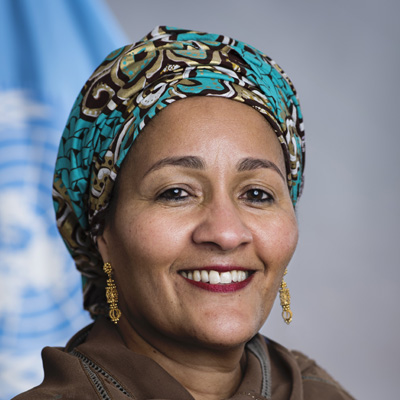
Before becoming the United Nations (UN) deputy secretary-general in early 2017, Amina J. Mohammed was the Minister of Environment of Nigeria. Prior to this, she supported the UN Secretary-General as special adviser on post-2015 development planning, where she was instrumental in bringing about the 2030 Agenda for Sustainable Development.
Mohammed has held several high-level responsibilities, including working with three successive Presidents in Nigeria as senior special assistant on the Millennium Development Goals (MDGs), coordinating poverty reduction interventions with debt relief gains of $1 billion per annum.
Some awards include: the distinguished Order of the Federal Republic; 2017 Diplomat of the Year by Foreign Policy magazine; Apolitical 2019’s 100 Most Influential People on Gender Policy; and The Africa Report’s 2019 100 Most Influential Africans. She was also profiled by Vogue as one of the 13 female climate warriors on the frontline. Fortune named her among the world’s greatest female leaders. She is also listed in the Nigerian Women’s Hall of Fame.
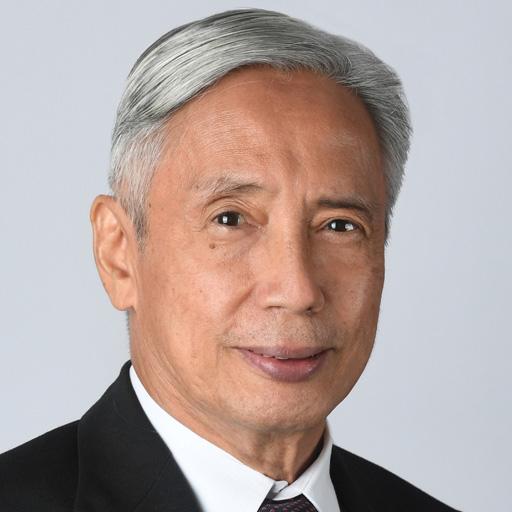
Felipe Medalla, a noted economist and educator whose career spans more than 4 decades and four administrations, is the current Governor of the Philippine Central Bank (Bangko Sentral ng Pilipinas).
Medalla has been a member of the policymaking Monetary Board since July 2011, having been appointed by former President Benigno Aquino III and President Rodrigo Duterte in July 2017.
Before joining the Monetary Board, he was a prominent figure in the academe, having taught at the University of the Philippines School of Economics (UPSE) from 1991 to 2011. He also served as UP vice-president of planning and finance from 1988 to 1991 before being named dean of UPSE from 1994 to 1998.
In 1998, Medalla was appointed Secretary of Socio-Economic Planning and Director-General of the National Economic and Development Authority by then-President Joseph Estrada.
He earned his doctor in philosophy degree in economics from Northwestern University in Evanston, Illinois and his master’s degree in economics from the University of the Philippines. A certified public accountant, he graduated cum laude from De La Salle University with an economics–accounting degree.
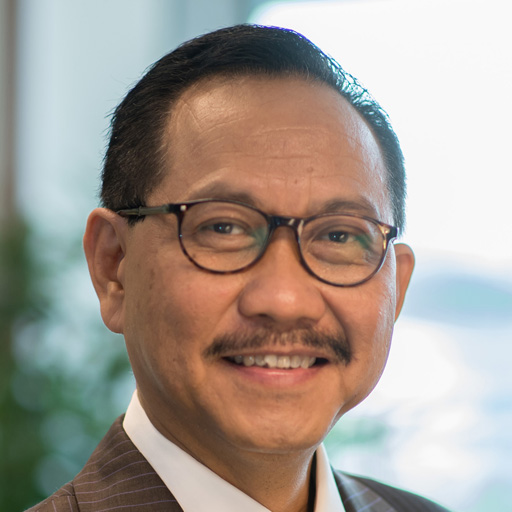
Bambang Susantono is the Chairman of the Nusantara National Capital Authority of the Republic of Indonesia since March 2022. The agency, a ministerial-level body directly under the President, is in charge of planning and constructing Indonesia’s new capital, as well as overseeing the government’s transition to the new city and eventually becoming its administrator.
Among other activities in international organizations, he currently serves as a member in the United Nations’ High-Level Experts and Leaders Panel on Water and Disasters, Islamic Development Bank Institute’s board of trustees, Bloomberg New Economy council for cities, and Tech for Good Institute’s advisory board.
He holds a doctor of philosophy degree in infrastructure planning and master’s degrees in transportation engineering and city and regional planning from the University of California, Berkeley. He holds a bachelor’s degree in civil engineering from the Bandung Institute of Technology.
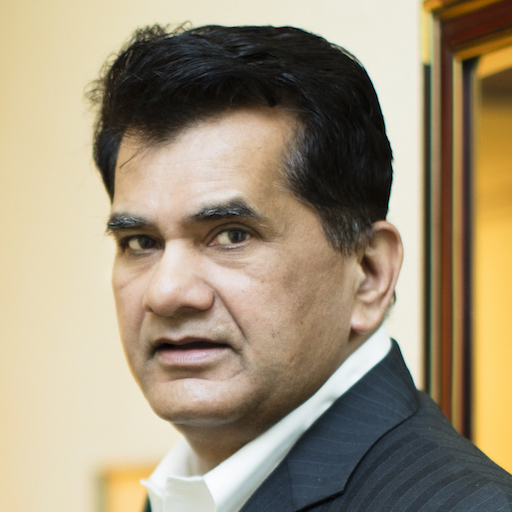
Amitabh Kant is India’s G20 Sherpa. The G20 or the Group of 20 is a forum where policymakers of industrialized and developing economies meet to discuss key issues in the global economy.
Kant is a governance reformer and a public policy change agent for India, having driven key reforms and initiatives during his tenure as the chief executive officer of the National Institution for Transforming India (NITI Aayog) from 2016 to 2022 and the secretary of India’s Department for Industrial Policy and Promotion (DIPP) from 2014 to 2016. He has been a key driver of flagship national initiatives such as Startup India, Make in India, Incredible India, Kerala: God’s Own Country; and the Aspirational Districts Program. These initiatives have repositioned India and Kerala and have widely been recognized as transformational.
NITI Aayog is India’s apex policy-making institution, with the Prime Minister as its chairman. As CEO of NITI Aayog, Kant has driven a vast range of national-level developmental and policy initiatives which catalyzed India’s social and economic development and have brought about a paradigm shift in policy-making.
As DIPP secretary, Kant has driven the Start-up India movement which has led to India emerging as the third-best ecosystem for startups globally, with over 70,000 startups and over 100 unicorns. His focus has been to facilitate the ease of doing business through predictability, consistency of policies, and elimination of rules, regulations, and procedures. This led to India jumping 79 positions in the "Ease of Doing Business Index." He also initiated competition and ranking among Indian states based on the World Bank-produced indicator. The competition and ranking has led to a transformational impact on India’s states.
Kant has also driven the Aspirational Districts Program, the largest outcome-based governance project in the world which improved the socio-economic indicators of the 112 most backward districts of India. Today, as per a number of independent assessments, including those by by the United Nations Development Programme and the Institute of Competitiveness, several districts in India have emerged among the best performing in their respective states.
A strong proponent of positioning India as a global hub for manufacturing and exports, Kant has been the key driver of Make in India and the Production Linked Incentive schemes which have given an impetus to manufacturing, innovation, and exports.
At NITI Aayog, he established India’s National Mission on Transformative Mobility and Battery Storage, which is responsible for driving the uptake of clean mobility in the country. The mission evolved policies and interventions which supported millions of citizens and hundreds of government agencies across the country to make the switch to electric mobility. Under his leadership, the mission supported the 26 states of India in evolving their electric vehicle policies and also successfully facilitated the launch of a tender for the procurement and operation of 5,500 e-buses, one of the largest tenders in the world.
Under his leadership, NITI also undertook extensive work on the Sustainable Development Goals (SDGs) across the country. He supervised the development of the country’s first regional district SDG monitoring system in the form of the “North Eastern Region District SDG Index and Dashboard” which covers all North Eastern States and their 120 districts. He took the SDG localization model further to the level of urban areas and led to the development of the SDG Urban Index & Dashboard in November 2022.
He has been the driver of the world’s first government-led subnational SDG index, the SDG India Index, which was launched in 2018. Since its inception, and now on its 4th year, it has become the country’s principal tool for monitoring progress on the SDGs for states and union territories. During his tenure, India’s first-ever National Multidimensional Poverty Index was launched which provides poverty estimates for states and districts across the country.
Kant set up the Behavioral Insights Unit of India and was instrumental in the launch of the Lifestyle For Environment movement, conceptualized by the Prime Minister, which places individual behavior at the heart of climate action.
He is passionate about the sunrise sectors of growth, particularly mobile manufacturing, green hydrogen, advanced chemistry cell batteries, electric mobility and battery swapping, and has steered several initiatives in these sectors for the purposes of climate adaptation and mitigation.
Kant earned his bachelor's degree in economics at St. Stephens, Delhi University and his master’s from Jawaharlal Nehru University. He is a Chevening scholar and has undertaken a mid-term course with the John F. Kennedy School of Government, Harvard University and the Indian Institute of Management, Ahmedabad.
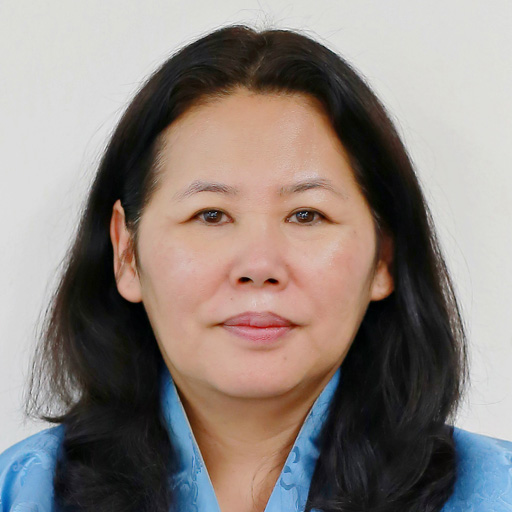
Dechen Tsering was appointed as the regional director of the United Nations Environment Programme (UNEP) in the Asia and the Pacific in March 2017. As the regional arm of UNEP, headquartered in Nairobi, Kenya, the Asia–Pacific office works with governments, local authorities, and the private sector to develop and put into place cleaner and safer policies and strategies that encourage the efficient use of natural resources and reduce risks for humans and the environment.
She has held management and leadership positions with the United Nations and has more than 30 years of experience in national government and intergovernmental organizations. She has been actively involved in intergovernmental negotiations as a key negotiator for least-developed countries and contributed to the establishment of the Least Developed Countries Fund and the Least Developed Countries Expert Group.
She also has experience in the management of complex development projects. She comes to UNEP from the United Nations Framework Convention on Climate Change (UNFCCC) secretariat, where she served as director of the finance, technology, and capacity-building program. In that position, she supported international cooperation on mobilization of finance, technology development and transfer, and capacity building to enable countries to take enhanced action on climate change. Prior to that position, she was the deputy regional director of UNEP in Asia and the Pacific.
She holds a doctor of philosophy degree in forest economics and policy from the Federal Institute of Technology, Zurich. She also has a master’s degree from Georgetown University and undergraduate degrees from the University of California, Berkeley.
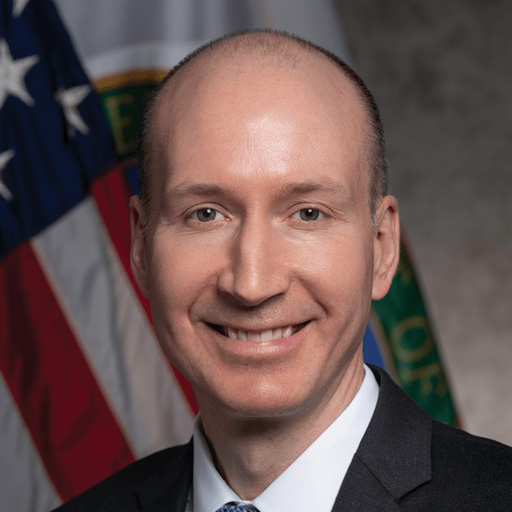
Prior to his nomination as deputy secretary, David Turk was the deputy executive director of the International Energy Agency, where he focused on helping countries around the world tackle their clean energy transitions. He also directed reports on the digitalization of energy systems, the future of clean hydrogen, and a project tracking progress on a wide range of clean energy technologies.
During the Obama-Biden administration, Turk coordinated international technology and clean energy efforts at the US Department of Energy. During this time, he helped spearhead the launch of Mission Innovation—a global effort to enhance clean energy innovation.
Turk also served as special assistant to the US President, and senior director at the US National Security Council, where he coordinated interagency legislative affairs efforts by the full range of national security agencies and provided legislative advice to council decision-making. He also previously worked at the US Department of State, including as deputy special envoy for climate change, and helped to coordinate New START Treaty ratification efforts in the US Senate.
Earlier in his career, he worked in both the US Senate, primarily on national security issues, and as the staff director of the national security subcommittee of the US House oversight committee.
Turk was born in Quito, Ecuador and raised in Rock Falls, Illinois. He is a graduate of both the University of Illinois at Urbana-Champaign and the University of Virginia Law School. He and his wife, Emily Turk, have three children.
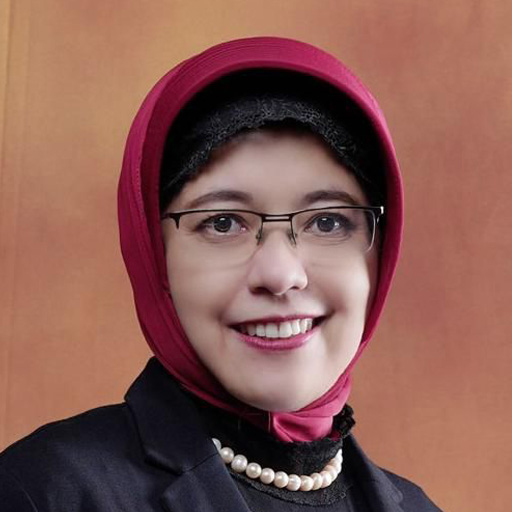
Amalia Adininggar Widyasanti is deputy minister for economic affairs at the Ministry of National Development Planning (BAPPENAS) of Indonesia. She obtained her doctor of philosophy degree in economics from the University of Melbourne, Australia in 2005 with her thesis, “Inflation Targeting Framework in Emerging Economies.”
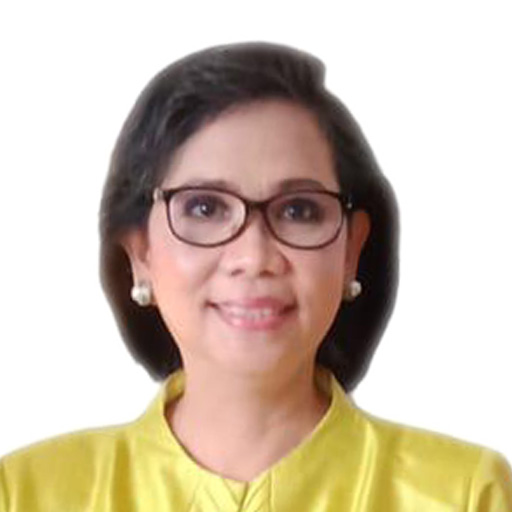
Lenny Rosalin has been serving as deputy minister for Gender Equality at Indonesia’s Ministry of Women’s Empowerment and Child Protection since 2021.
She served at the Ministry of National Development Planning from 1988 to 2007. She was also chair of the ASEAN Committee on Women Empowerment from October 2021 to September 2022.
Rosalin has been instrumental in driving the gender equality agenda forward in her country and internationally. In 2022, during Indonesia’s G20 presidency, she urged G20 countries to prioritize international cooperation to address gender gaps in digital transformation, entrepreneurship, and labor markets, as well as to focus on the gender equality dimensions of climate change action and energy transitions. She has also been a key contributor to the development of toolkits to advance gender budgeting in Indonesia.
Rosalin holds a master’s degree in monetary economy and financial investment from the University of Illinois Urbana-Champaign. She has taught at Universitas Indonesia and Atma Jaya University of Indonesia.
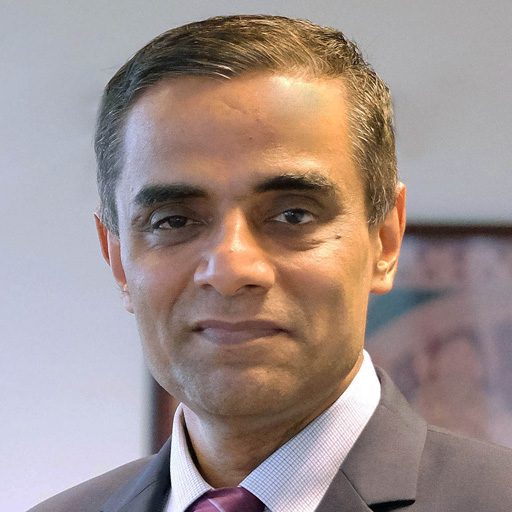
Ramesh Subramaniam has been with the Asian Development Bank (ADB) for over 25 years, since March 1997. He has worked in different functions and areas in over 25 countries across the various sub-regions of Asia and the Pacific. In his current capacity as Director General of the Southeast Asia Department (SERD) from July 2017, he is in charge of ADB’s relationship with the 10 countries in the Association of Southeast Asian Nations (ASEAN) and Timor-Leste, as well as all of its sovereign engagement. He has been a member of various Global Agenda/Future Councils of the World Economic Forum (WEF) since 2012, and currently serves as the co-chair of the ASEAN Hub of WEF’s Sustainable Development Investment Partnership.
With a talent pool of over 430 globally and locally recruited staff, SERD has over $25 billion in projects under implementation. SERD also has several ongoing policy and structural reform programs with over $12 billion in funds disbursed and under monitoring. ADB’s new sovereign commitments in Southeast Asia stand at around $7 billion per year in transport, energy, urban, agriculture and natural resources, human development, finance, and public management sectors, besides regional cooperation and integration.
From February 2020, Subramaniam has been steering ADB’s work in the sub-region to help countries in their COVID-19 response. ADB mobilized close to $6 billion in exceptional financing for economic and health sector measures in Southeast Asia.
The principal focus of the Southeast Asia Department from 2021 onwards is on post-pandemic recovery and helping the region deal effectively with the impact of climate change. The department has adopted the “3M Approach": mainstreaming climate change in all of ADB’s work; mobilizing resources to support climate adaptation and mitigation; and messaging on the need for just and affordable climate transition.
Subramaniam has also served as the director general of ADB's Procurement, Portfolio and Financial Management Department (2015–2017); deputy director general of SERD (2013–2015); senior director in the Office of Regional Economic Integration (2011–2013); director of public management and financial sector (2007–2010) as well as director of urban infrastructure (2010–2011) in Central and West Asia; and principal economist and deputy country director in Indonesia (2003–2007).
With a strong focus on policy and institutional reforms across the region, Subramaniam seeks to help the region’s developing member countries reduce poverty, achieve equitable growth, and attract greater private sector investments. He has led several important initiatives such as the establishment of the ASEAN Infrastructure Fund, various critical post-crisis counter-cyclical reform and restructuring programs in many countries, as well as post-disaster reconstruction projects across the Asia and the Pacific. The ASEAN Policy Network and the ASEAN Innovation Hub were established under his leadership in 2017. He also oversaw the establishment of the ASEAN Catalytic Green Finance Facility.
Among other aspects of his work, Subramaniam is most humbled by his role in formulating ADB’s support to developing member countries after several devastating disasters, including the December 2004 Indian Ocean tsunami; the 2006 Yogyakarta earthquake; the 2006 Pakistan earthquake; the 2009 Pakistan floods; the 2013 Typhoon Haiyan in the Philippines; the 2018 Palu earthquake and tsunami in Indonesia; and most recently the 2020 COVID-19 pandemic.
In parallel, Subramaniam has maintained strong interest in education as an instrument for change. Improving social service delivery has been a key part of his support for public sector reforms in many countries. Outside of ADB, he is involved in a range of service activities in livelihood, healthcare, and education, with the aim of promoting basic yet fundamental human values of love, truth, peace, right conduct, and non-violence in society overall.
Subramaniam has an MA in economics from the University of Madras, India (1988) and a PhD in economics from McMaster University, Canada, where he was also a lecturer (1990–1993). He has been a research fellow on industry at the University of St. Andrews in the United Kingdom from December 1993 to January 1994, and a Rockefeller fellow at Yale University Economic Growth Center from February 1994 to March 1997.
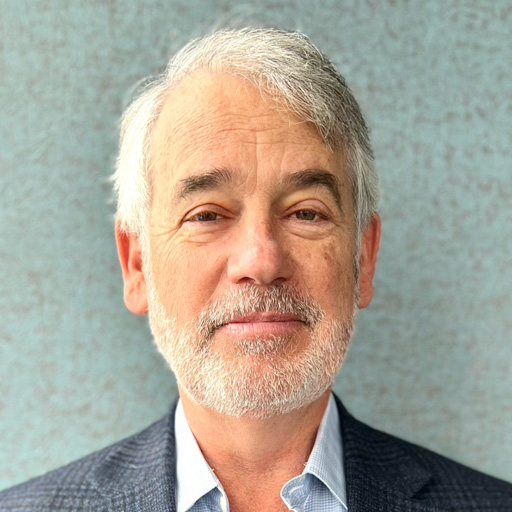
Sean Kidney is the chief executive officer of the Climate Bonds Initiative, an international NGO working to mobilize global capital for climate action. Projects include a green bond definitions and certification scheme with $34 trillion of assets represented on its board and some 200 organizations involved in its development and governance; working with the central bank of the People’s Republic of China (PRC) on how to grow green bonds; and supporting market development programs in Brazil, Colombia, Mexico, Nigeria, and East Africa.
He is a member of the European Commission's Platform on Sustainable Finance, and was a member of its predecessors, the 2017 EU High Level Expert Group on Sustainable Finance and the EU Technical Expert Group on Sustainable Finance. He is also a member of green finance advisory groups in the PRC, India, Kazakhstan, and Mexico, and an advisory board member of the International Sustainable Financial Centre in Prague.
He has previously been a consultant on green bonds to the United Nations Secretary General, a member of the People’s Bank of China Green Finance Task Force, and a member of the Commonwealth Secretariat’s Expert Committee on Climate Finance.
Kidney is also a professor in practice at SOAS University of London.
For the past 3 years, he has been voted GlobalCapital magazine’s “Most Influential Champion” of the sustainable finance market.
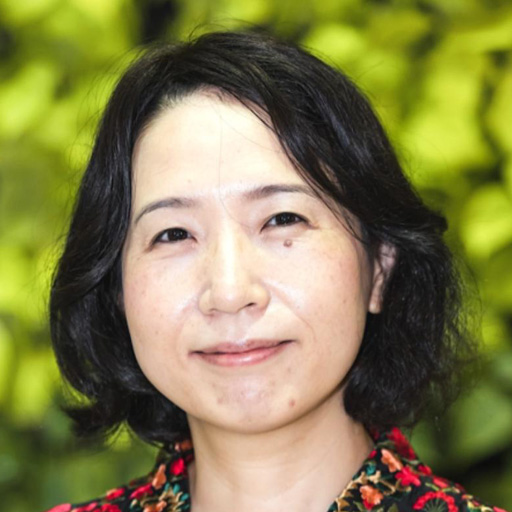
Yuki Yasui is the director overseeing the Asia–Pacific (APAC) Network for the Glasgow Financial Alliance for Net Zero (GFANZ) which was launched in June 2022. She is focused on bringing together the financial sector across developed and emerging APAC to accelerate an inclusive and just transition to a net-zero economy.
Prior to joining GFANZ, she was at the United Nations Environment Programme (UNEP) Finance Initiative (FI) for 20 years and leading its activities in Asia-Pacific for the last 4 years. She has represented UNEP FI at all three major sustainability reporting initiatives, Global Reporting Initiative, International Integrated Reporting Council, and the Sustainability Accounting Standards Board, at various points in time. Other projects include developing and running the UNEP FI online course on climate change for the finance sector and representation at Rio+20.
She is a qualified chartered accountant in the UK and trained and worked at PricewaterhouseCoopers. She is currently based in Singapore and has worked in Bangkok, Geneva, and London.

Herry Cho joined the Singapore Exchange (SGX Group) in February 2021 and drives its sustainability and sustainable finance strategic direction and implementation.
She is in the steering group of the Glasgow Financial Alliance for Net Zero, is a member of the Taskforce on Nature-related Financial Disclosures, and is on the management advisory board of the National University of Singapore’s Sustainable and Green Finance Institute.
She pioneered in the development of Asia and the Pacific’s sustainable finance markets, in her former role as regional head of sustainable finance at a multinational bank. There she led the origination and execution of sustainable finance transactions—including green, social, and sustainability bonds and loans—and delivered sustainability advisory.
She also served on the executive committee of the International Capital Market Association’s (ICMA) Green Bond Principles and Social Bond Principles, and was the sustainability lead on ICMA’s Asia-Pacific regional committee and on the Loan Market Association’s Green Finance Committee.
She leverages on a broad financial background, having previously worked in mergers and acquisitions advisory, capital structuring and advisory, and equity and debt capital markets.
Based in Singapore, she has also previously worked in Hong Kong, China; London; and Amsterdam.
She holds a combined bachelor’s and master’s degree in molecular and cellular biochemistry from the University of Oxford.
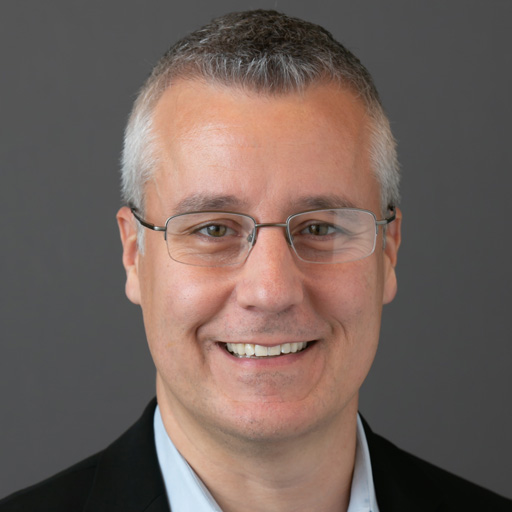
Douglas Sabo is chief sustainability officer at Visa Inc. In this role, Sabo leads development and oversight of Visa’s global environmental, social and governance (ESG) efforts, including Visa’s ESG strategy, framework, reporting and stakeholder engagement. Sabo also leads Visa’s initiatives in environmental sustainability, human rights, and other areas of responsible business.
In sustainability, Sabo’s work includes building Visa’s initiatives in the company’s operations as well as in empowering sustainable living and commerce. Sabo currently serves as a member of the Sustainable Brands Advisory Board, New York Stock Exchange Sustainability Advisory Council, Centre for Sport and Human Rights Advisory Council, and the Sustainable Finance Working Group of the Institute of International Finance. He is also a member of the World Economic Forum’s Global Future Council on Sustainable Tourism and helps represent Visa in the Travalyst sustainable travel initiative.
Sabo is a frequent speaker on a variety of ESG, corporate responsibility, and sustainability topics on behalf of the company. He was included in the Top 100 Leaders in Sustainability list in 2022. He is also a regular voice on social media (@GreenLivingDoug on various platforms) and curator of the #SustainableLife blog at www.greenlivingdoug.com.
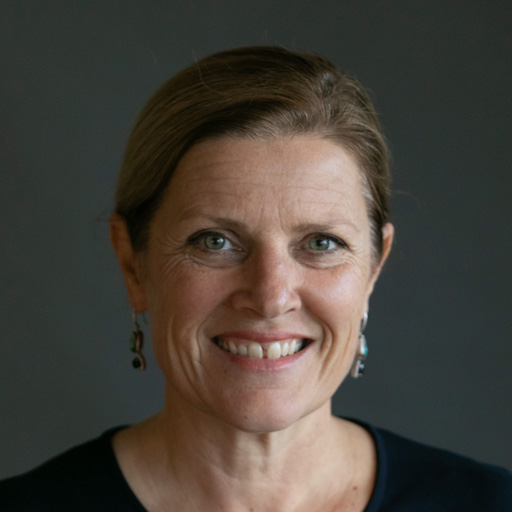
Michaela Browning joined Google in November 2021 as vice-president for government affairs and public policy for Asia and the Pacific. Prior to joining Google, she held a range of senior positions in the Australian government as a career diplomat, with over 27 years of experience focusing on the Asia–Pacific, international trade and investment, security, and economic development.
She was most recently the inaugural CEO of the National Foundation for Australia–China Relations. She has served on diplomatic postings in Singapore, Thailand and, most recently, as Australia’s consul general to Hong Kong, China and Macau, China from 2017 to 2020. She has been senior international adviser to the Australian defense and foreign ministers.
Browning has also held senior trade and investment policy and operational roles, including at the Australian Trade and Investment Commission (Austrade), where she led global investment promotion activities for Australia, and led trade and investment for established markets (including Japan, the Republic of Korea, New Zealand, North America, and Europe). She previously managed Australian Aid’s development program for Afghanistan and Pakistan. She has also represented Australia as an agriculture negotiator for the World Trade Organization’s Doha round. She negotiated competition, telecommunications, and other chapters of Australia's free trade agreements with the United States and Singapore.
She is one of Australia’s members of the APEC Business Advisory Council and on the board of the Australia Japan Business Co-operation Committee and of the Asia Society (Australia Chapter). She is an advisory board member for the Asian Development Bank. She is also an ambassador for the Australian Indigenous Education Foundation. She has previously served on boards for professional services, education, veterans volunteer, and disaster response organizations.
Browning is a graduate of the Australian Institute of Company Directors. She holds a master’s degree in foreign affairs and trade and a bachelor’s degree in economics, with honors, both from Monash University.
She is passionate about Asia and now lives in Singapore.

As deputy director general of the Asian Development Bank’s (ADB) Southeast Asia Department, Winfried Wicklein supports the planning and delivery of ADB’s goals, strategies, and work plan in Southeast Asia. This involves ADB’s relationships and public sector work in ASEAN countries, as well as support for sub-regional cooperation initiatives in the region. The Southeast Asia Department has over 400 staff, a total portfolio of $25 billion, and annual commitments of $7 billion.
With ADB for over 20 years, he has wide-ranging experience in the areas of infrastructure finance, private sector development, and country strategy and program coordination across Asia and the Pacific. Prior assignments include country director to Indonesia and Myanmar, as well as country postings in Australia, the Philippines, and Thailand.
Prior to joining ADB, he worked in corporate finance advisory (PricewaterhouseCoopers) and prior to that, for the United Nations Industrial Development Organization.
A national of Austria, he holds a master’s degree in business administration from the University of Münster, Germany.

Ming Tan is the founding executive director of the Tech for Good Institute. She is concurrently a senior fellow at the Centre for Governance and Sustainability at the National University of Singapore. Her research interests lie at the intersection of technology, business, and society, including sustainability and innovation.
She was previously managing director of IPOS International, part of the Intellectual Property Office of Singapore, which supports Singapore’s future growth as a global innovation hub for intellectual property creation, commercialization, and management.
Prior to joining the public sector, she was head of stewardship of the COMO Group, a Singaporean portfolio of lifestyle companies operating in 14 countries worldwide. Her portfolio covered sustainability, and brand and data privacy. She was concurrently the founding executive director of COMO Foundation, the private philanthropy of the owner of the COMO Group.
As a company director, she lends brand and strategic guidance to several companies within the COMO Group. In the not-for-profit space, she is an advisor to Singapore Totalisator Board and serves on the boards of Esplanade–Theatres on the Bay, Singapore’s national performing arts center, St. Joseph’s Institution International Ltd., and COMO Foundation.
As part of her commitment to holistic education and the arts, she also sits on the advisory panel of the Centre for the Arts of the National University of Singapore.
She was educated in Singapore, the United States, and England. She obtained her bachelor’s and master’s degrees from Stanford University and her doctorate from Oxford University.
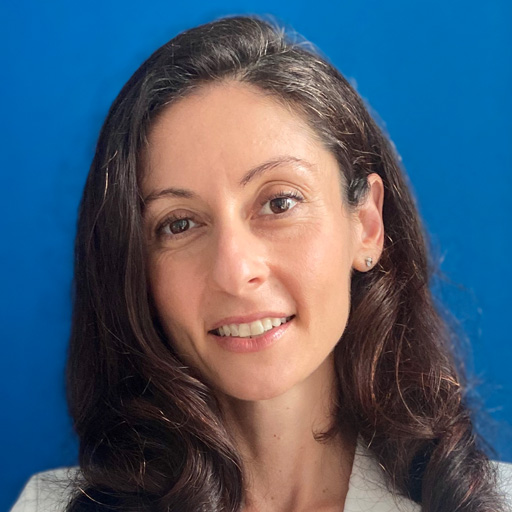
As executive director of the Resilient Cities Network, Lauren Sorkin leads global efforts in 100 cities in over 40 countries in dealing with complex challenges including climate change, access to equitable opportunities, and promoting a circular economy.
She serves as an advisor and spokesperson on urban resilience, women’s leadership in sustainable finance, climate risk, and urbanization trends. She is on the advisory boards of Food Tank and Natural Capital, and on the editorial advisory board of SmartCitiesWorld.
Previously with the Asian Development Bank (ADB), she led ADB’s first climate change investment plan, before mainstreaming climate risks and opportunities for Viet Nam’s $7-billion portfolio.
Earlier in her career, she delivered clean energy, climate change, and conservation projects in Africa, Asia, and South America.

As principal portfolio management specialist at the Indonesian Resident Mission of the Asian Development Bank (ADB), Joris van Etten works with the government and his ADB colleagues to enhance performance of ADB’s sovereign loans in the country. He also coordinates ADB’s support for the development of Indonesia’s new capital city.
Previously, van Etten was responsible for the implementation of the ADB-managed ASEAN–Australia Smart Cities Trust Fund, oversaw the processing and administration of future and ongoing urban projects in Indonesia financed by ADB, helped draft ADB’s Livable Cities Operational Priority Plan, and managed the Cities Development Initiative for Asia.
Over the past 20 years, van Etten has worked with cities in over 40 countries. Prior to joining ADB, he worked for GIZ, UN-Habitat; the European Commission, and the Institute for Housing and Urban Development Studies.
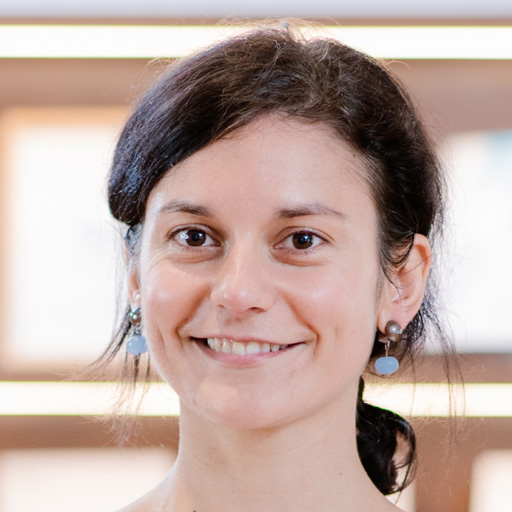
Giulia Ajmone Marsan is an innovation, technology, startup, and entrepreneurship strategist, with over 15 years of experience in economic policy analysis and advice, capacity building, and economic diplomacy. She has advised government officials, international organizations, and other stakeholders from across the globe.
Ajmone Marsan is currently the director of strategy and partnership at the Economic Research Institute for ASEAN and East Asia (ERIA) where she leads the organization’s work on entrepreneurship, startup and innovation ecosystems; women entrepreneurship; skills for the digital transformation and innovation; as well as the development and nurturing of high-level strategic regional and global partnerships.
Prior to joining ERIA, she worked as an innovation economist at the Organisation for Economic Co-operation and Development (OECD), where she contributed to the activities of directorates, such as the Directorate for Science, Technology and Innovation and the Center for Entrepreneurship, SMEs, Regions and Cities.
Ajmone Marsan is a member of the Inclusion Task Force of Startup20, the newly established G20 engagement group on startups and innovation ecosystems, as well as the steering group of the OECD Entrepreneurship Education Collaboration and Engagement Initiative. She has also collaborated with and provided strategic advice to a number of multilateral bodies, including ASEAN, Asian Development Bank, European Commission, G20 Indonesia, Inter-American Development Bank, and UN agencies, as well as international universities and development organizations worldwide.
Ajmone Marsan's analysis, publications, op-eds and commentaries have appeared in leading international journals and media outlets.
She holds bachelor and master degrees in applied mathematics from the Polytechnic School of Turin, Italy and a doctor in philosophy degree in economics and complex systems jointly awarded from the Ecole des Hautes Etudes en Sciences Sociales, Paris, France and the IMT Institute for Advanced Studies, Lucca, Italy.
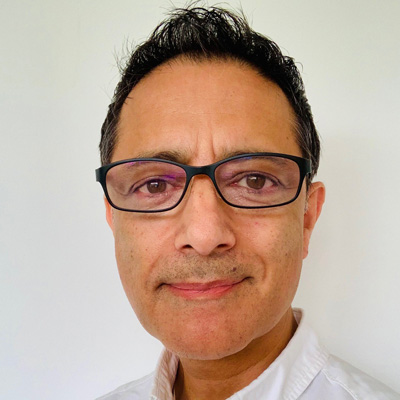
As Save the Children International’s regional advocacy and campaigns director for Asia, Shaheen Chughtai provides strategic leadership to the aid agency’s influencing work across the region to support vulnerable children and their families. He leads a team of advocacy, campaign, communications, and media specialists assisting more than a dozen country offices working on a range of thematic areas including humanitarian crises, education, protection, health, livelihoods, and the climate crisis. One key priority is supporting child and youth-led advocacy and campaigning, especially on the climate crisis.
A former journalist, Chughtai has worked in a variety of policy, influencing, and engagement roles in the international aid sector in the past 17 years. These include: head of campaigns, policy and communications for Oxfam International's regional Syria Crisis Response (based in Jordan); deputy head of humanitarian policy and campaigns at Oxfam GB’s headquarters in the United Kingdom; Save the Children UK’s Middle-East advocacy and media manager, based in Lebanon.
Chughtai holds a bachelor’s degree in Arabic and history and a master of science in international politics focusing on Asia and Africa, both from the University of London’s School of Oriental and African Studies.
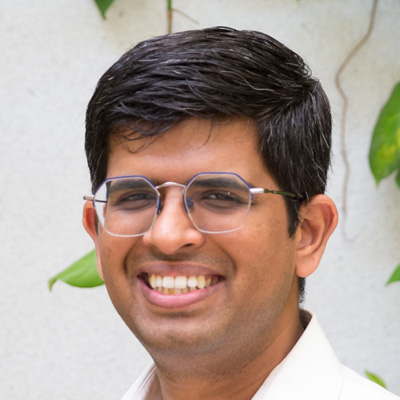
Prateek Hegde is the chief operating officer for Asia–Pacific and chief executive officer for Singapore at Generation. He oversees the implementation of Generation programs run in partnership with SkillsFuture and Polytechnics in Singapore, and also leads Generation’s outreach and expansion efforts in Asia–Pacific. Prior to this, he led the country operations for Generation India where he oversaw Generation’s scaling to over 3,000 graduates within a year with above-market placement and on-job retention outcomes. He also led efforts to embed the Generation methodology within public-funded training providers.
Before Generation, he led the country operations of a skill-development startup that trained and certified over 25,000 drop-outs in India in various employable skills of the future.
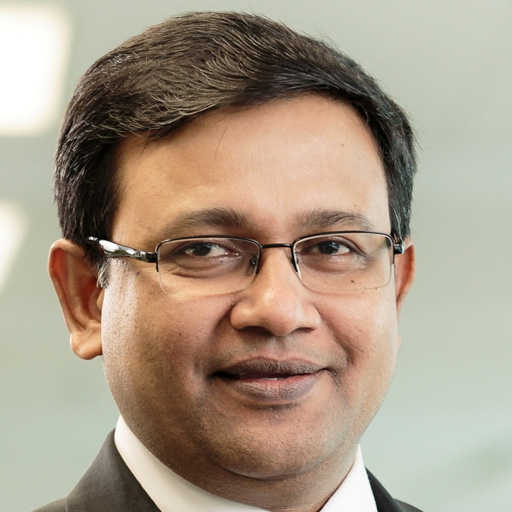
Narsingh Chaudhary is the executive vice-president and managing director for Asia-Pacific at Black & Veatch. He is responsible for the regional profit and loss center in Asia–Pacific covering services to lumpsum turnkey for power, gas fuel and chemicals, water, telecom, data center, decarbonization, and various infrastructure business.
He is a business professional with more than 28 years of international business experience with diverse roles and functions in general management, corporate strategy, sales, and project management.
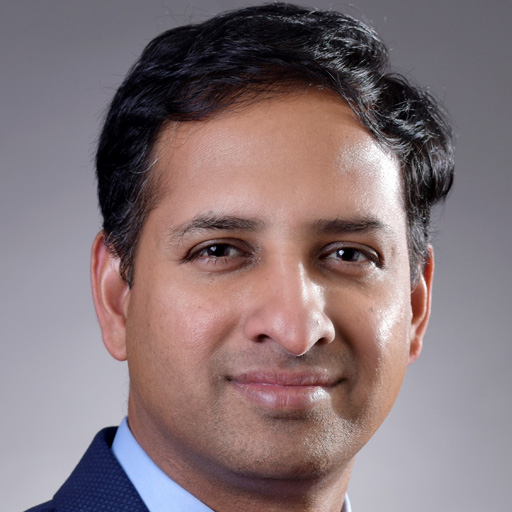
Shrisankaraan Villupuram Santhanam is director for digital services and products for East Asia and acting digital leader for Southeast Asia for Arup. He is responsible for the company’s software services and data-driven digital solutions enabled with AI, and advises clients on the integration of data silos in built environment.
He has over 23 years of experience in design and implementation of transformational smart operational solutions leveraging the Internet of Things and data analytics across various sectors: construction, public security, gaming, property, supply chain/logistics, etc. He has managed several landmark projects in Hong Kong, China and gained extensive multidisciplinary experience from bid to strategic delivery.
His pro-bono work includes being a member of the board of directors at the Hong Kong Internet of Things Alliance and the Hong Kong, China chapter of Project Management Institute.
He holds a master’s degree in business administration from the Hong Kong University of Science and Technology, with a bachelor’s degree in electrical and electronics engineering. He is a professionally qualified project director, information security auditor, information security manager, and data privacy solution engineer. He completed the executive course on innovation and leadership from the Massachusetts Institute of Technology in 2018. He was awarded Chief Experience Office of the Year under the “Value Creation” category in the program hosted by INSEAD and judged by IDC, Hewlett Packard Enterprise, and Intel.
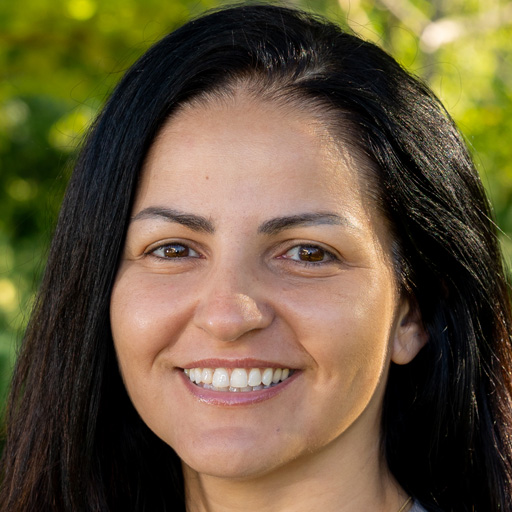
Marija Ralic leads Google.org, the data-driven, human-focused philanthropic arm of Google, in the Asia–Pacific. Since joining Google in 2019, she has managed Google’s philanthropic work across the Asia–Pacific region to support innovative nonprofits using technology to tackle complex global challenges. She works with teams across the regions to bring the best of Google to help solve some of humanity’s biggest challenges—combining funding, innovation, and technical expertise to support underserved communities and provide opportunities for everyone.
Ralic brings years of experience in driving regional planning and community investments, sustainability, economic contribution (empowering underserved job seekers, SMEs, women, etc.), AI for social impact, capacity building, and youth access to digital and media literacy and computer science education.
Before Google, Ralic served as a regional program manager overseeing the philanthropic programs at Microsoft Philanthropies across 17 countries in the Asia–Pacific and 20 countries in Central and Eastern Europe.
Before her corporate philanthropy journey, Ralic spent 5 years in AIESEC Serbia, the world’s largest youth-run nonprofit, which focuses on developing the leadership potential of young people through experiential learning, volunteer experiences, and professional internships. She served AIESEC in various functions, including as president of the AIESEC chapter in Serbia and vice-president of external relations.

Francesco Ricciardi works as senior environment specialist for the Sustainable Development and Climate Change Department at the Asian Development Bank (ADB). He leads the development of strategies, policies, and projects related to nature-based solutions applied to coastal resilience and biodiversity conservation in Asia and the Pacific.
Prior to joining ADB, Ricciardi worked for about 10 years in different universities focusing on the impact of environmental contamination on natural ecosystems and biodiversity. After leaving academia, he has worked as an environment and ecology consultant in several projects around Asia, including renewable energy plants, large coastal infrastructures, and natural resources development and protection.

Thomas Abell is the chief of Asian Development Bank’s (ADB) Digital Technology for Development Unit, which promotes the effective use of digital technology across ADB programs to improve development impact. His team works with ADB member countries in supporting the transition to the digital economy and provides assistance across many areas, including e-government, connectivity, tech startup ecosystems, earth observation, technology policy, and industry partnerships.
Abell has more than 30 years of professional experience in digital technology, including technology policy and strategy, software development, and systems architecture. During his more than 10 years of experience in international development, he has worked extensively across Asia, Africa, and Latin America, working with governments, development organizations, nongovernment organizations, and corporations.
He has authored many publications on technology innovation in development, focused mainly on education, financial inclusion, and agriculture.
Abell has master’s degrees in engineering and management, and a bachelor’s degree in engineering from the Massachusetts Institute of Technology.

Linh Le is the global lead for Smart City Competency Program, Worldwide Public Sector, Amazon Web Services (AWS), focusing on developing and supporting AWS’s partner ecosystem around smart cities, and providing the best-in-class partner recommendations for AWS customers to innovate smart city solutions on AWS cloud. In addition, Le is the global lead for AWS Internal Smart City Community of Practice.
Prior to joining AWS, he was an urban development specialist in the East Asia Department of the Asian Development Bank (ADB), where he led smart cities infrastructure loans and technical assistance in the People's Republic of China and Mongolia, where he piloted the use of innovation solutions to enhance community-based urban upgrading and regeneration.
Prior to ADB, he spent 7 years at the World Bank in Washington DC and Hanoi, Viet Nam where he co-led and supported several urban infrastructure projects with a focus on upgrading low-income areas and developing integrated urban infrastructure in selected Asian and African cities.
Le is Vietnamese and holds a master’s degree in international development in Southeast Asia from Johns Hopkins School of Advanced International Studies in Washington DC.
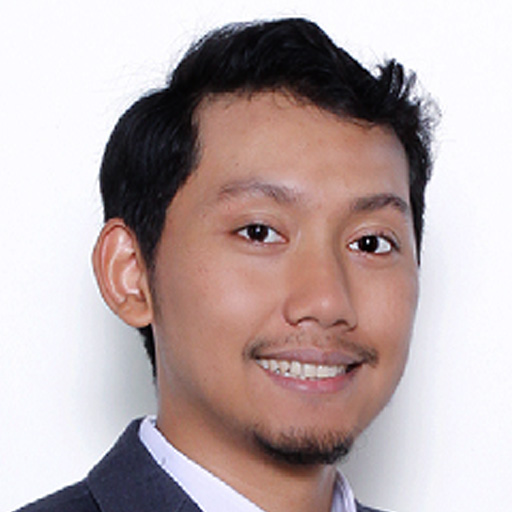
Zulfikar Yurnaidi manages the Energy Modeling, Policy, and Planning Department of the ASEAN Centre for Energy. The department leads the energy research and cooperation activities in ASEAN, implementing regional energy policy and planning, including cross-sectoral issues, and supporting other program areas of the ASEAN Plan of Action for Energy Cooperation. Among others, the department is responsible for the development of the ASEAN Energy Outlook and ASEAN Energy Database System.
Previously, he was the project manager of the 7th ASEAN Energy Outlook, senior officer of the Renewable Energy and Energy Efficiency Department, and senior research analyst of the ASEAN Climate Change and Energy Project.
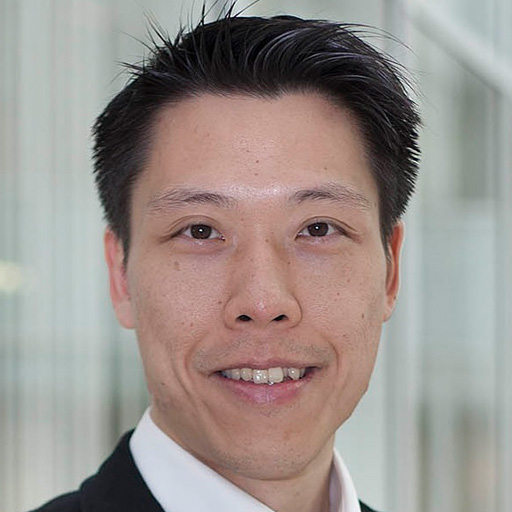
Bruce Chong is the city advisory, climate and urban sustainability leader for Arup in the East Asia region. He also leads city resilience and sustainable infrastructure design at Arup.
He has more than 20 years of experience in the industry, leading strategic projects on smart city, climate resilience, city informatics, sustainable infrastructure, and circular economy for city governments, private developers, and organizations such as the World Bank, International Finance Corporation, Asian Development Bank, Asian Cities Climate Change Resilience Network, Asia–Pacific Economic Cooperation, Resilient Cities Network, and Ellen MacArthur Foundation.
Over the past few years, he has focused on carbon neutrality and climate emergency, developing statistical and probabilistic approaches for assessing carbon and climate risk to support Science-Based Targets Initiative, Task Force on Climate-related Financial Disclosures, and related environment, social, and governance disclosures for clients in both public and private sector.
He has established a center of excellence for climate modeling as part of his commitment to help organizations across Asia build climate resilience and answer the demand from investors and policymakers. Recently, he launched the Asia Corporate Coalition for Climate Change Resilience, a platform to drive a more climate-resilient business community in Asia.
He is an overseas scholar at the University of Cambridge, and a research fellow at Sydney University.

Stephen Peters is a senior energy specialist at the Asian Development Bank (ADB). He specializes in waste-to-energy topics in the energy sector group of the Sustainable Development and Climate Change Department at ADB.
He is responsible for developing the knowledge base, project development, and implementation in waste-to-energy, and supporting projects across waste, the circular economy, and ocean impacts.
Prior to joining ADB, he was managing director of the Stratcon group of companies and chairman of the Asia–Pacific Biogas Alliance.
He also served as a board member of the Australian Chamber of Commerce, Singapore. He has a master’s degree in engineering science and a bachelor’s degree in engineering from the University of Melbourne, Australia.
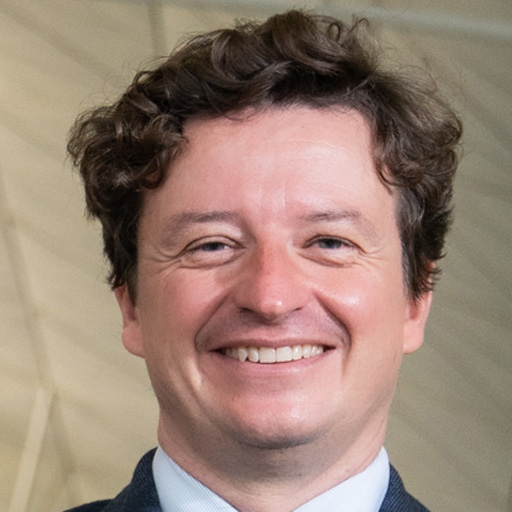
Stefano Baronci is the director general of Airports Council International (ACI) Asia–Pacific, an association representing the interests of airports in Asia–Pacific and the Middle East. Appointed in December 2019, he is responsible for driving and executing the strategic plan of the association and overseeing a team of professionals at the regional office based in Hong Kong, China.
Baronci has 22 years of analytic and representational experience at national and international levels in the aviation sector, representing both airport and airline industries. He is very familiar with the ACI community, having previously served as the director of economics at ACI World in Montreal and senior policy manager at ACI Europe in Brussels.
He has also served as secretary general of Assaeroporti, the Italian airport operators association, and assistant director and air traffic management infrastructure expert at the International Air Transport Association.
Baronci, a native of Italy, holds an executive master’s degree in business administration from University of Warwick in the United Kingdom and graduated with a law degree from Sapienza University of Rome, Italy. He is married with two children.

Dini Indrawati Septiani, as the Indonesia country director of Asian Venture Philanthropy Network (AVPN), leads strategy, operational, and funding activities in developing the social investment ecosystem in Indonesia. She promotes partnerships and innovative collaboration as the key enablers of a sustainable future in Indonesia.
She has 21 years of experience in finance, social enterprises, and international nongovernment organizations in Japan, Indonesia, and Singapore, equipping her with a unique set of skills and perspectives that help her build a strong engagement with the Government of Indonesia, while also connecting her to dozens of social impact players leveraging everything from grants to debt and equity across the continuum of capital.
Septiani completed her master’s degree in psychology, area of concentration on social intervention, from the University of Indonesia. She was a recipient of the 2020 Eisenhower Fellowship Women’s Leadership Program and the 2019 Obama Foundation Leaders Asia–Pacific Program. She was also recognized as one of the Indonesia Youngsters by SWA Magazine.
She leads an active lifestyle, being a diver and a marathon runner who has participated in the Ironman competition.
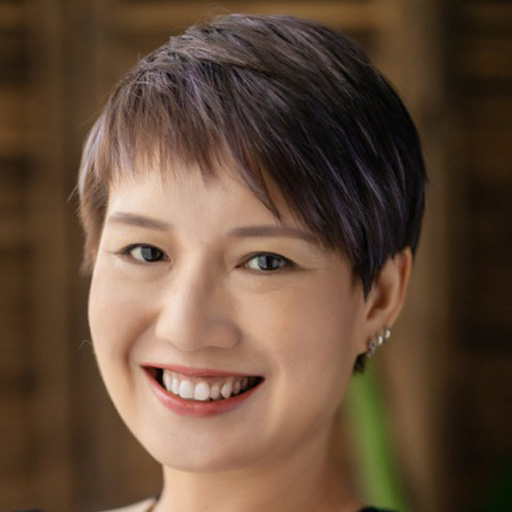
Emily Ng oversees Majors Accounts, driving the growth of the majors customer segment, across Asia for Zoom. She is responsible for leading her teams in establishing strong relationships with existing partners and customers in the region, as well as empowering new customers as they seek to innovate for the digital economy ahead.
An industry expert with over 20 years of experience in the technology sector, Ng brings to Zoom a proven track record in growing and managing emerging and turnaround businesses, cultivating high-performing and cross-cultural teams, as well as establishing long-term connections with C-level executives.
Ng is actively involved in mentoring efforts for women and spearheads diversity, equity, and inclusion initiatives at the company.
Outside of Zoom, she mentors budding professionals at the National University of Singapore Society and INSEAD International Women in Business.
Ng joined Zoom from Oracle, where she was the global strategic client director in charge of a multi-functional business team tasked with providing excellent customer service.
She holds a master’s degree in business administration from INSEAD.

As a senior public management specialist in the Asian Development Bank's (ADB) Digital Technology for Development Unit, Arndt Husar facilitates the effective use of digital technology, advising ADB clients, regional departments, as well as sector and thematic groups on digital transformation.
Husar focuses on data analytics, tech start-up ecosystems, digital connectivity, and digital transformation strategies. He facilitates ADB’s interdepartmental working group on digital technology risk, which is evolving assessment approaches for ADB operations.
Husar has been supporting the bank’s futures thinking and foresight activities, co-leading foresight projects of the transport sector group and country-level activities.
Prior to ADB, Husar worked with the UN Development Programme at national, regional, and global levels. He holds a master’s degree in spatial planning from TU Dortmund University, Germany.
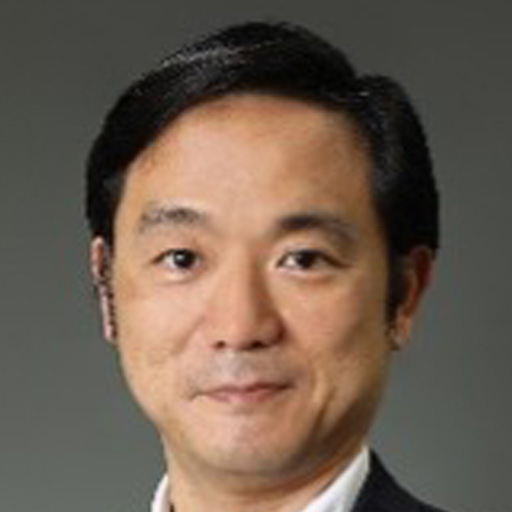
Tomohiro Ishikawa heads the Government and Regulatory Affairs Office at Mitsubishi UFJ Financial Group, Inc. (MUFG). Ishikawa is responsible for orchestrating the group-wide advocacy strategy on financial regulatory policies, including prudential requirements, digital/crypto, and climate change. He oversees recovery/resolution planning for the group, and the government relations across the regions.
Prior to his current role, Ishikawa headed MUFG’s regulatory strategy team for the Europe, Middle East, and Africa region, based in London.
Ishikawa serves as a board member of the Global Financial Markets Association, representing MUFG. As part of MUFG’s sustainability/climate change program, Ishikawa serves as a member of the steering group of Net Zero Banking Alliance (NZBA). He chairs the NZBA financing and engagement working group, which published the NZBA Transition Finance Guide in October 2022.
Until January 2017, Ishikawa worked as the head of digital branch in the Government and Regulatory Affairs Division at Deutsche Bank AG, where he led the advocacy engagement on technology- and digital-related policies.
Prior to joining Deutsche Bank in London, Ishikawa served as deputy director of Prudential Policy Office at Financial Services Agency of Japan, where he led the derivative reform implementation in Japan. He also chaired a work stream under the Working Group on Margin Requirement, reporting to the Basel Committee on Banking Supervision and International Organization of Securities Commissions Board, with the mandate to harmonize margin rules across the regions.
Ishikawa started his professional career at Merrill Lynch as an investment banker. After 12 years at Merrill Lynch (Tokyo and New York), he moved to RECOF Corporation, and then to Deutsche Bank (based in Tokyo). He has 15 years of experience as a financial institutions group investment banker, prior to becoming a regulatory policy expert.
Ishikawa graduated from Keio University in Tokyo, Japan in 1996. He lived in Toronto, Canada, prior to studying economics at Keio.
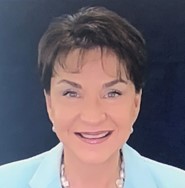
Susan Potgieter’s role as part of Hitachi’s Strategic Management Office is to bring new innovative thinking across multiple key transformations verticals. Her focus is to use Hitachi’s global scope to provide thought leadership in key industry segments. She has worked on smart and net zero city projects in India and Australia covering health precincts, councils, waste, smart grids, and smart green airports.
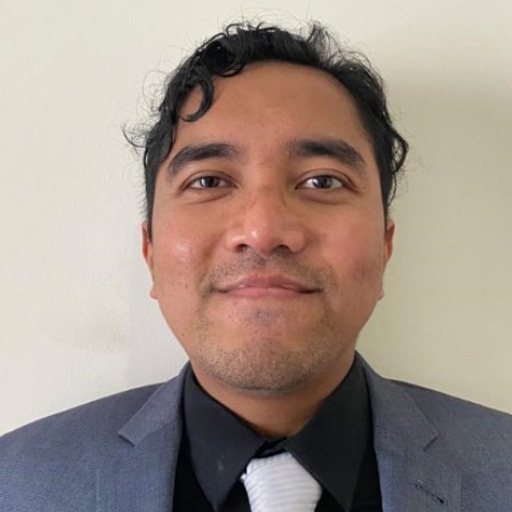
Edo Mahendra is a special advisor to Indonesia’s coordinating minister for maritime affairs and investment. He advises the coordinating minister on carbon pricing, energy transition, and maritime sector industrialization. He holds a doctor in philosophy degree from the University of Oxford.
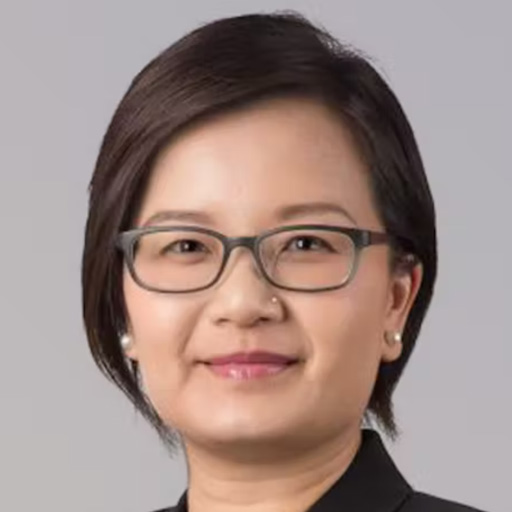
Patsian Low brings over 25 years of international and cross-industry experience to work on breakthrough strategies and operations for social and environmental impact. She does this in the fields of social entrepreneurship/social investment, impact philanthropy, corporate social impact, and nonprofit strategy.
Currently, she works closely with Visa’s Asia–Pacific business to develop and execute its impact and sustainability strategy. She ensures connection between regional priorities and Visa’s global programs, introduces new regional initiatives and partnerships, and drives employee engagement efforts.
She has also worked with the Asian Venture Philanthropy Network, Johnson & Johnson Global Community Impact Asia–Pacific, Tri-Sector Associates, Singapore’s National Volunteer and Philanthropy Centre, Corporate Citizenship (part of SLR Consulting), and Asia Philanthropy Circle in leadership and consulting roles to engage multisector resources for greater impact locally and regionally.
She sits on the boards of several innovative startup nonprofit organizations in Singapore. Previously, she was the founding head of DBS Foundation and oversaw DBS Bank’s corporate social responsibility activities across their six operating markets.

Pavnesh Kumar is an experienced sustainability specialist and a professional architect with more than 7 years of experience working in Southeast Asia, Asia, and Africa. At Pacific Asia Travel Association, his goals include developing sustainability as a solution for tourism development, streamlining sustainability roadmaps for responsible tourism, facilitating research, and addressing strategies for organization engagement.
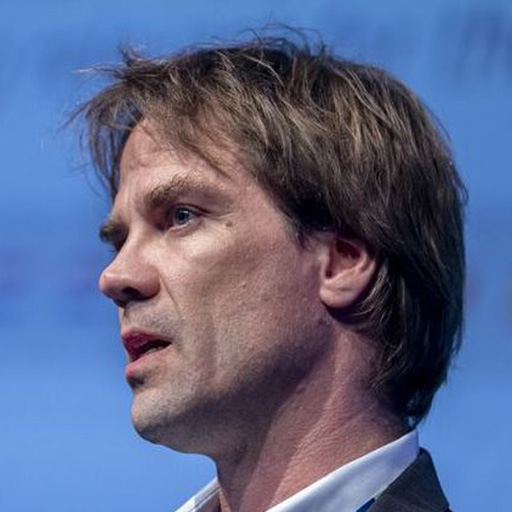
Benjamin Koetz is the head of the Sustainable Initiatives Office at the Earth Observation Directorate of the European Space Agency (ESA). The Sustainable Initiatives Office focuses on partnerships, co-designed together with international user communities and stakeholders, with the goal of long-term and sustainable adoption of earth observation information in operations. As part of the Global Development Assistance program, ESA partners with the Asian Development Bank to mainstream earth observation into development assistance operations.
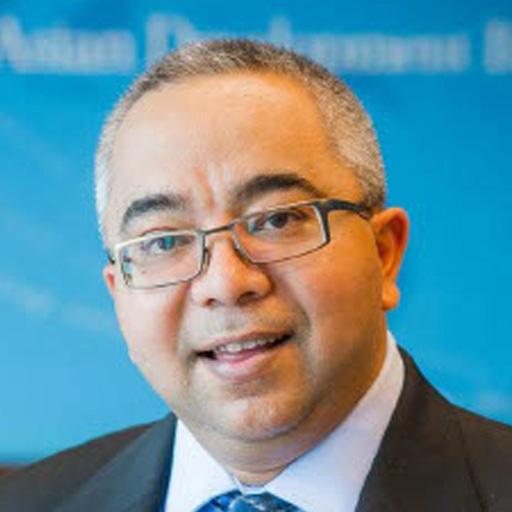
Said Zaidansyah is the deputy country director for Indonesia at the Asian Development Bank (ADB) since November 2018. He works closely with the country director to lead ADB’s operations in Indonesia and manage relationship with the government and other stakeholders, including the private sector and civil society.
Prior to this, he was the principal counsel at the ADB’s Office of the General Counsel. He joined ADB under the prestigious Young Professional Program in 2002. Before joining ADB, he was a lawyer with Baker & McKenzie.
He holds a master of laws degree, with merit, from Queen Mary College of University of London, and a law degree from University of Indonesia.
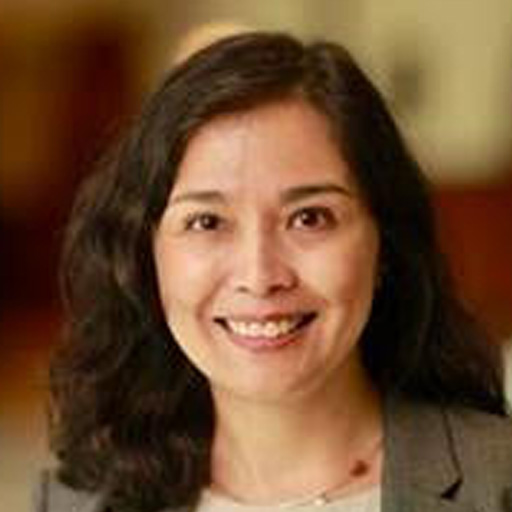
Veronica Joffre is a senior gender and social development specialist at the Asian Development Bank (ADB). She leads the gender equality program in Southeast Asia and has previously managed ADB’s gender equality initiatives in the People’s Republic of China and Mongolia.
Joffre is a strong advocate for sustainable development and a believer in the power of diversity to spark innovation. She has designed initiatives for integrating gender and social inclusion in climate change interventions; and for addressing and preventing domestic violence, including through the use of new technologies.
She has written extensively on demographic and structural transformations, labor markets, sustainable consumption and production, and the social impact of financial crises.
Joffre holds a master’s degree in public policy and management from the School of Oriental and African Studies, University of London, and a master’s degree in agricultural knowledge system from Wageningen University in the Netherlands.
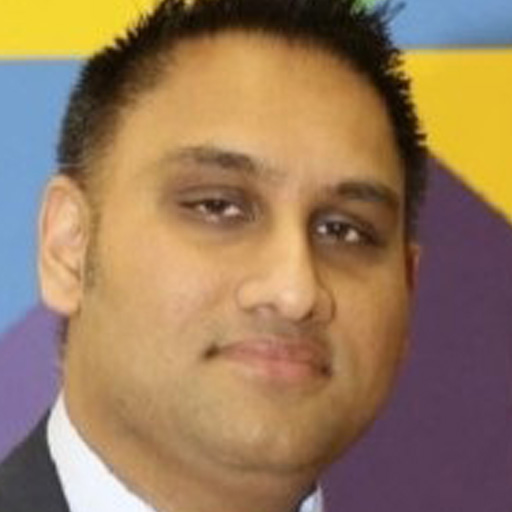
Avneet Singh is the EMEA (Europe, the Middle East, and Africa) senior specialist solutions architect for Energy and Utilities at Amazon Web Services (AWS). He is based out of Amsterdam, the Netherlands and is responsible for establishing AWS's leadership position in building resilient cloud native solutions for the energy and utilities vertical.
He has more than 15 years of experience in the utility industry. He has delivered successful technology solution projects across the meter-to-cash cycle spanning smart metering, billing, invoicing, and regulatory compliance.
He has a keen interest in the Internet of Things, data analytics, and renewable energy optimization. He actively collaborates with renewable energy operators across North America, EMEA, and the Asia–Pacific and Japan regions, developing next-generation, renewable energy solutions on the AWS cloud.
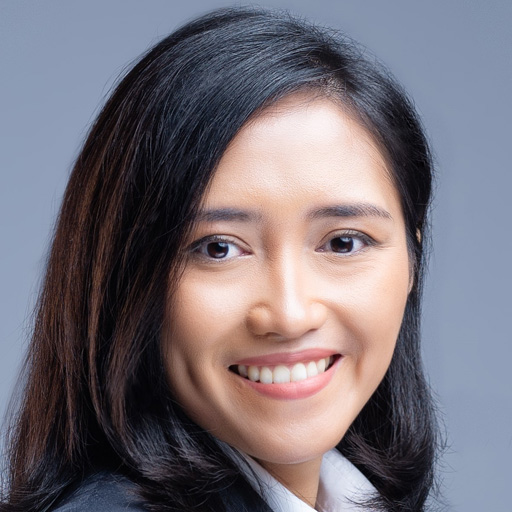
Astrid Dita is an economist and public policy practitioner currently leading the tech and digital work for Tony Blair Institute for Global Change (TBI) in Indonesia.
Prior to joining TBI, Astrid was a public policy lead for Amazon Web Services in Indonesia, spearheading initiatives related to public sector use of cloud and sustainability.
Through her advisory work in the public and private sectors, she has advised the Government of Indonesia on policies, programs, and project designs in various areas, including public financial management, public-private partnerships on infrastructure, education, health, social protection, and data analytics.
She earned her master’s degree in economics from the University of Indonesia, and bachelor’s degree on pharmaceutical biotech from Bandung Institute of Technology.

Genevieve Ding leads sustainability policy strategy for Asia and the Pacific at Amazon Web Services (AWS), working with local and international AWS leadership to closely engage key government officials and wider policy stakeholders on technology policies for sustainable innovation. This includes overseeing sustainability innovation efforts for data center infrastructure and cloud services in Singapore and ASEAN, and facilitating energy and carbon innovation for AWS. She was also on SG Tech’s Data and Cloud Chapter Executive Committee, and its Sustainability Committee.
Prior to joining AWS, Ding spent almost 15 years in the administrative service of the Government of Singapore, in four ministries and agencies. She served in the Singapore Foreign Service as a diplomat in Beijing overseeing economy and trade policies relating to the People's Republic of China, before taking up the role of head, economic strategy at the Ministry of Finance.
She has more than a decade of experience in sustainability, and worked closely with Singapore’s political leadership in the ministries of foreign affairs, finance, and national development to develop national policies on climate finance and carbon pricing, climate change mitigation and adaptation; and national research and development, energy innovation, tech and enterprise policies to improve Singapore’s economic competitiveness in a sustainable way. She is also strategic advisor on sustainability to Teja Ventures, Asia’s first gender lens venture capital fund.
Outside of work, Ding is a proud mother of three. She is also an advocate for social and women’s issues as founding chapter leader for Lean In Singapore and as a grassroots leader in the community and schools. She thoroughly enjoys solo traveling to document social issues.
Ding holds a bachelor’s degree from Duke University in the US in political science, philosophy, and economics, and a master’s degree in global governance and diplomacy from the University of Oxford, specializing in global financial governance. She also has a certificate in documentary filmmaking from New York Film Academy, and a yoga teacher certification.
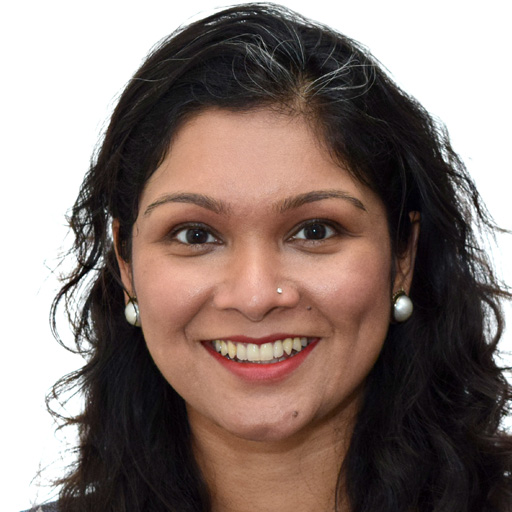
Lazeena Rahman is a senior climate finance specialist and Energy Transition Mechanism (ETM) deputy team leader for the climate finance and private sector for the Asian Development Bank (ADB). She is based in Jakarta, Indonesia.
Prior to assuming this role in 2022, Rahman was as an investment specialist with ADB’s Private Sector Operations Department (2011–2016), as well as an investment officer for the International Finance Corporation's (IFC) blended finance and East Asia Pacific infrastructure teams (2016–2022). Across her roles at ADB and IFC, Rahman has led and supported the structuring of commercial debt, equity, and concessional finance with a strong transaction focus on the energy sector (geothermal, gas, solar, wind, storage) alongside work in the logistics, forestry, water supply, and wastewater sectors.
Rahman holds a joint master’s degree in business administration and public policy from the Stanford Graduate School of Business, and a bachelor’s degree in sociology from Harvard College.
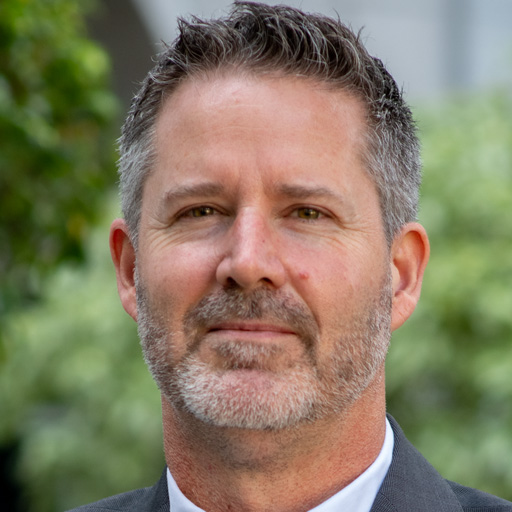
David Elzinga has worked in the sustainability and climate change fields in both public and private sectors for over 20 years, with a focus on innovation, infrastructure, finance, policy, and analysis. He has funded and directly deployed projects through partnerships with numerous companies, governments, nongovernment organizations, financial institutions, and others—both in developing and developed countries. As a skilled engineer and communicator, he has worked in over 50 countries promoting the use of sustainable technology for impact.
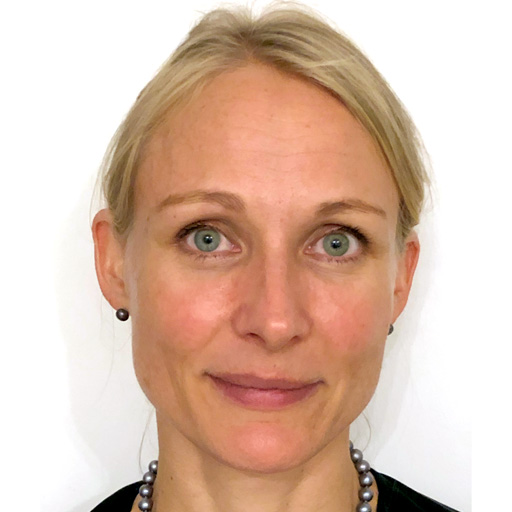
Anna Stablum is director of sales and origination at Climate Impact X and is responsible for driving revenue growth, while building an active sales pipeline for voluntary carbon credits. She is also an active marketer and sees the importance of educating people about climate change and the role carbon credits can play to halt global warming.
Stablum previously worked in the metals and mining industry as sales manager for two interdealer brokers operating on the London Metal Exchange and the Singapore Exchange. Prior to that, she worked as commodities correspondent at Reuters and Bloomberg News.
She has a master’s degree in Latin American Studies from Oxford University, and a master’s degree, with honors, in politics and economics from Glasgow University.

Jean-Baptiste Grassin is an entrepreneur and engineer who specializes in plastic waste management with a thesis published on solutions in emerging markets. He is building resilient business models with local communities and businesses, and contributing to regenerate nature. He is recognized in the sector as one of the world’s 50 Rising Stars: Class of 2022 by Plastics News.
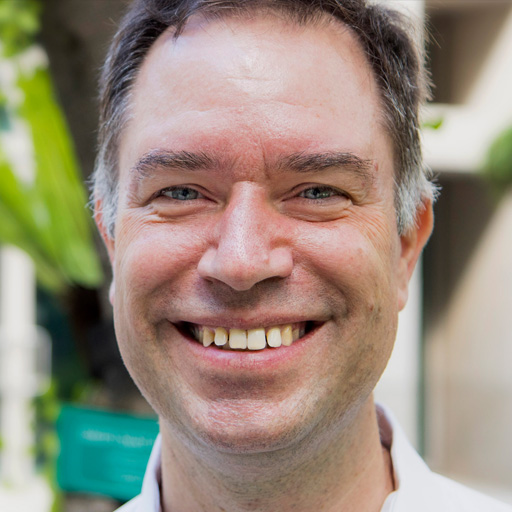
Marc Lepage has worked in the knowledge and technology innovation for development context since 1998. He currently works at the Asian Development Bank (ADB) as principal IT specialist for technology innovation, based in Manila, Philippines.
Lepage advises and supports ADB with its 2030 digital agenda, by designing and implementing ADB’s digital learning labs program, an initiative aiming at exploring emerging digital technologies like artificial intelligence, blockchain, and robotics, to future-proof ADB and support developing members interested in testing digital innovation in a safe environment.
Prior to this position, Lepage worked for the United Nations in multiple duty stations across Asia, Middle East, and Africa for more than 20 years. His responsibilities included serving as innovation advisor, knowledge manager, technology for development project manager, and various senior advisory roles in the sphere of technology for sustainable development.
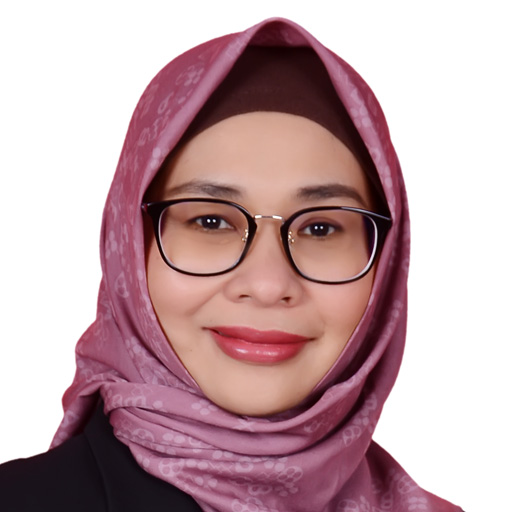
Myrna A. Safitri has been serving as deputy of environment and natural resources at Indonesia's Nusantara National Capital Authority (NNCA) since October 2022. Prior to joining NNCA, she was the deputy of the Indonesian Peatland and Mangrove Restoration Agency, performing the functions of education, dissemination, participation, and partnership.
Before being a government official, she was engaged in environmental and forestry policy reform in Indonesia, as an academician, and a civil society actor. She was also the director of Epistema Institute—a nongovernmental organization that conducts studies and provides advisory support on law, society, and the environment.
Currently, she is a lecturer on environment and spatial planning law of the Faculty of Law at Pancasila University, Indonesia. She earned her doctoral degree from Leiden University, the Netherlands, with the dissertation titled “Forest Tenure in Indonesia.”
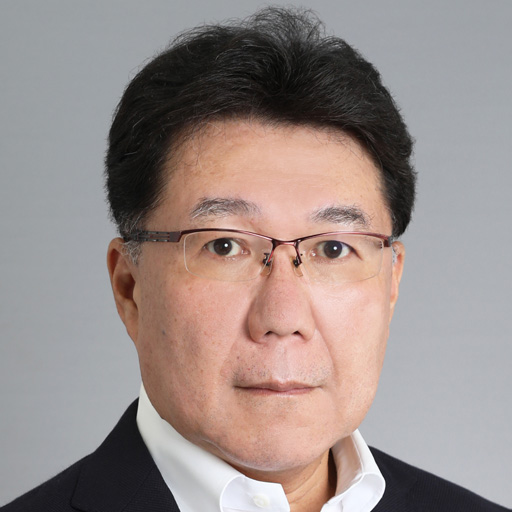
Hiroshi Takashima is the advisor on sustainability and financial regulation at Norinchukin Bank. He has 28 years of experience in international financing businesses and financial regulatory affairs. He also works as research counselor and head of the sustainability research team at Norinchukin Research Institute Co., Ltd.
He has worked for the Norinchukin Bank for over 30 years and held various posts on risk management and overseas branch management, including a stint as joint general manager of the risk management division and general manager of the London branch.
He leads the bank’s policymaking on managing securitized products as well as its implementation of Basel II framework in accordance with the bank’s risk management structure.
He has written several research reports on climate change and biodiversity loss. He recently spoke about blue finance and the co-benefits of shallow coastal ecosystem conservation in a webinar organized by Norinchukin Institute.
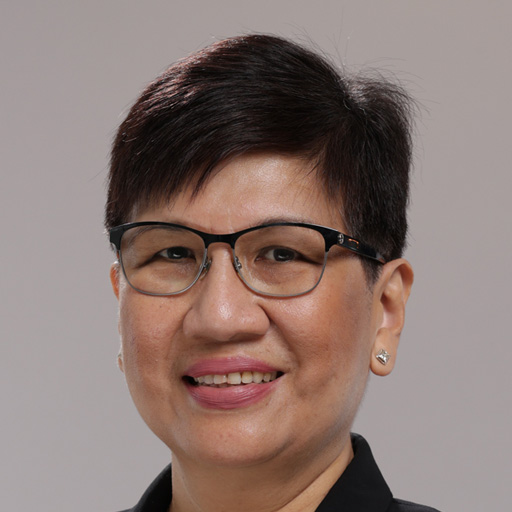
As ACEN Corporation’s chief finance officer, treasurer, and chief compliance officer, Maria Corazon Dizon heads various functional finance units, including financial planning and analysis, controllership, corporate finance, treasury, and internal audit.
She also holds directorship positions within the ACEN Group, and is chair of the audit and risk committee of ACE Endevor, Inc. She is concurrently the chief finance officer and treasurer of ACE Enexor, Inc.
Dizon joined Ayala’s Energy and Infrastructure Group in 2016.
She worked for 28 years at Ayala Land, Inc. (ALI), where she served as head of ALI Capital Corp. as well as other business units, including investor relations. She was also the chief financial officer of the residential buildings, office buildings, and shopping centers groups.
Dizon attended an executive management program at Wharton University of Pennsylvania, and is a certified public accountant.
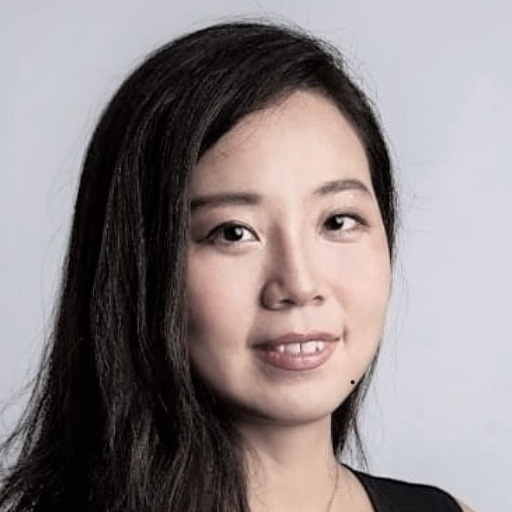
Vivian Zheng heads S&P Global’s ESG (environmental, social, and governance) solutions for Southeast Asia—Sustainability1—where she advises clients on ESG data and analytics at different stages of their sustainability journey. Zheng has 14 years experience in sustainability consulting. She has advised clients across Asia–Pacific on ESG risk governance and sustainability reporting, including net-zero and carbon accounting, sustainability governance, ESG materiality assessment, TCFD (Task Force on Climate-Related Financial Disclosures) -aligned climate risk scenario analysis, ESG policies, key performance indicators, and targets. Before S&P Global, Zheng worked at KPMG, advising corporate clients on complying with the latest ESG regulatory and listing requirements. Zheng has conducted sustainability reporting process for many first-year sustainability reporters in the Asia–Pacific to improve sustainability transparency, strategy, and governance. She holds a master's degree on environmental and social policy from the Lee Kuan Yew School of Public Policy, National University of Singapore.
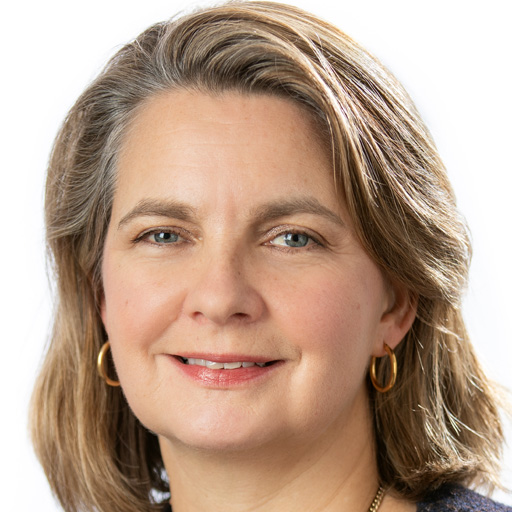
Eugenie Kayak is the enterprise professor in sustainable healthcare at the University of Melbourne’s Melbourne Medical School. She is a Melbourne-based public and private anesthetist. She holds a master of public health degree in health economics and an MSc public health degree.
For over a decade, she has worked with Doctors for the Environment Australia (presently as co-convenor of sustainable healthcare), the Australian healthcare sector, and her own anesthetic specialty to raise awareness of, and address, the health impacts of climate change and environmental degradation—including healthcare’s own impact.
Work with the Australian Medical Association has resulted in a collaboration calling for the Australian healthcare sector to have net-zero carbon emissions by 2040 with an 80% reduction by 2030. Kayak is a member of Australia’s Chief Medical Officer Advisory Group for the development of the National Health and Climate Strategy.

Josh Karliner works with Health Care Without Harm (HCWH) to build a zero-emissions, climate-resilient and more equitable healthcare sector that advocates for a healthy climate and a just transition. He has been with HCWH since 2005, establishing a series of initiatives, including the organization’s Global Green and Healthy Hospitals Network, with members now in 81 countries.
Closely collaborating with the World Health Organization (WHO), Karliner spearheaded HCWH’s successful worldwide campaign to eliminate mercury in healthcare. He led HCWH’s more recent work with WHO and the UK COP Presidency to secure commitments from more than 60 governments for sustainable, low-carbon, climate-resilient healthcare.
He has authored two books, along with a wide variety of publications on global environmental and health policy, including two groundbreaking reports—the first one defined healthcare’s worldwide climate footprint and the second set forth a global road map to decarbonize the healthcare sector.
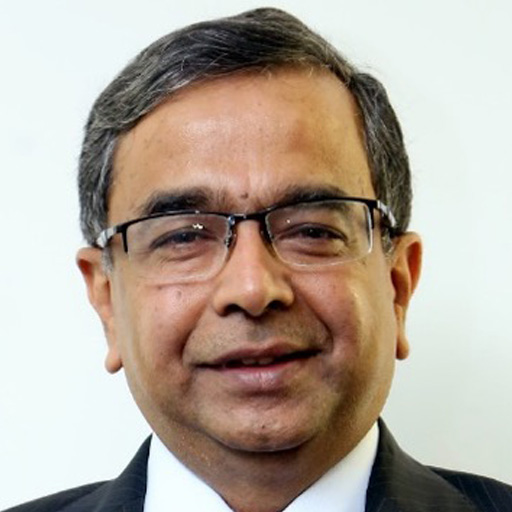
K. Srinath Reddy is a noted speaker on the intersectional needs of climate change and health, with several publications in this thematic area.
He is the past president of the Public Health Foundation of India and formerly head of the Department of Cardiology at All India Institute of Medical Sciences. He was appointed as advisor on health to the Government of Odisha, with the rank of a cabinet minister, in March 2017. He is also an advisor on health to the Government of Andhra Pradesh, with cabinet rank since March 2020. He served as physician to two Prime Ministers of India, and is a member of the Government of India Technical Taskforce for COVID-19.
Reddy was appointed as the first Bernard Lown visiting professor of cardiovascular health at the Harvard School of Public Health (2009–2013) and presently serves as an adjunct professor of epidemiology at Harvard (2014–2023). He is also an adjunct professor of the Rollins School of Public Health, Emory University; honorary professor of medicine at the University of Sydney; and adjunct professor of medical ethics and health policy in the associated faculty of the Perelman School of Medicine at the University of Pennsylvania.
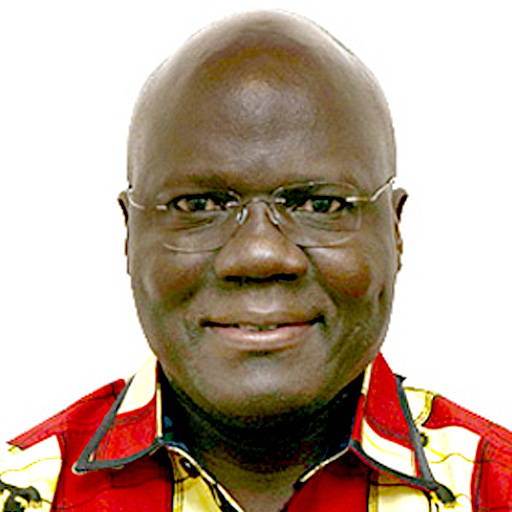
As the Chief of Health Sector at Asian Development Bank (ADB), Patrick Osewe provides leadership on policy, technical, and operational matters for the health sector. He leads the application of new and innovative approaches to address priority and emerging health issues in the Asia and Pacific region. He brings global and regional knowledge to the ADB and promotes best practices by elevating ADB's current activities within the global health community.
Osewe is leading ADB’s work on the intersection of climate change and health. He led a team of experts to support G20 under the India Presidency to address climate change and health. He has over 25 years of experience as a global health leader, including having previously worked for USAID and the US Centers for Disease Control and Prevention, as well as providing support to UN agencies and countries in different parts of the world.
Prior to his time at ADB, he worked as the World Bank’s global lead of healthy societies. He led strategies for achieving universal health coverage, combatting the emerging threat of non-communicable diseases, and addressing health security. He has led major regional multisectoral efforts to address tuberculosis in Southern Africa’s mining sector and has led efforts to build World Bank and client capacity in the use of results-based management.

John Thwaites is a professorial fellow at Monash University and chair of the Monash Sustainable Development Institute, Climateworks Centre, and The McKinnon Institute for Political Leadership. Thwaites is also chair of Melbourne Water and the Circular Economy Ministerial Advisory Group to the Government of Australia. He is a co-chair of the Leadership Council of the UN Sustainable Development Solutions Network launched by the Secretary-General of the United Nations to provide expert advice and support to the development and implementation of the Sustainable Development Goals. Thwaites was deputy premier of Victoria from 1999 until his retirement in 2007. During this period, he held various ministerial portfolios including Minister of Health, Minister of Environment, and was Victoria’s first Minister for Climate Change. In these portfolios he was responsible for major reforms in social policy, health, environment, and water.
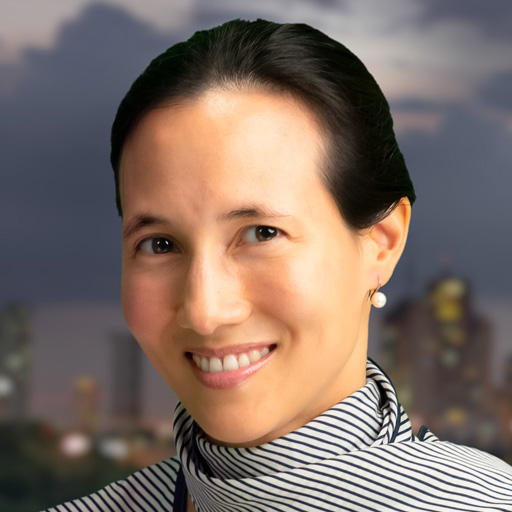
Adrienne Heinrich heads the AI and Innovation Center of Excellence at Aboitiz Data Innovation and at Union Bank of the Philippines. She also has an expanded role as the innovation management lead for Aboitiz Equity Ventures.
Before that, Heinrich led artificial intelligence and machine learning for personal health and connected care products at Royal Philips.
She has a background in information technology, and has received her doctor of philosophy degree in video motion analysis for emerging application areas.

Tiny Haynes has been an analyst for 12 years, covering data centers, cloud, sustainability, data residency and sovereignty. Prior to joining S&P Global, he was a research director at Gartner for 11 years. His background prior to that was building data center product portfolios in Europe and Bermuda.
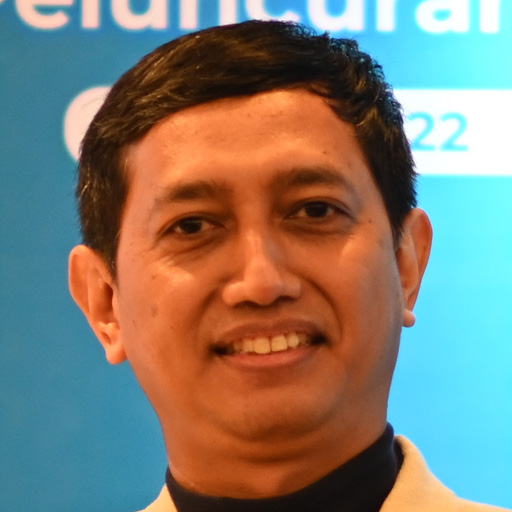
Setiaji Setiaji is the head of the Digital Transformation Office of the Ministry of Health of Indonesia and an expert advisor on health technology to the Minister of Health. He is a digital leader and a civil servant with more than 10 years of experience in digital transformation and smart city development in the line ministries and government agencies in Indonesia.
After graduating with a degree in information technology engineering, he built on his knowledge by leading the West Java Digital Services, Jakarta Smart City. All his expertise and experience on data and technology utilization are applied to serve the public effectively, efficiently, and in an impactful way.
Setiaji is a team builder who is very attentive to the needs of stakeholders and leaders. He plays an essential role in providing practical solutions that directly impact and improve public services. He has won various national and international awards in digital transformation, including Top CIO on Digital Implementation for IT Works 2021 and The World CIO 200 Awards–Southeast Asia Edition, Global CIO Forum 2021.
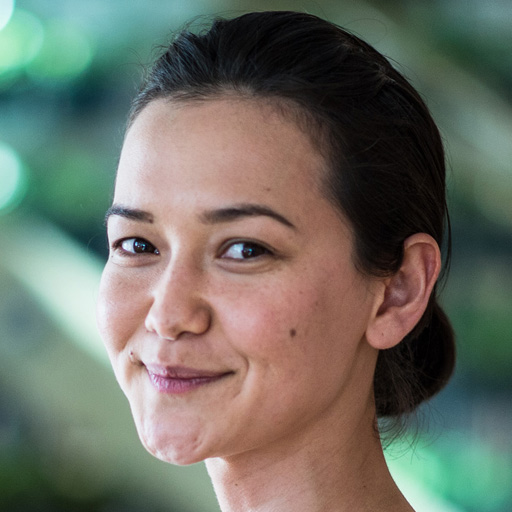
Safiah Moore leads Arup Indonesia’s Cities, Planning, and Design team based in Jakarta. She is an urban planner, with more than 14 years of experience in the built environment industry.
Moore has been involved in diverse projects, almost always working in multidisciplinary teams to collaborate on projects that relate to precinct development, land use and transport integration, digital strategies, social infrastructure, and city resilience.
Recent work includes the Indonesia New Capital City master plan and support with the Asian Development Bank; low-carbon mobility with vulnerable communities with the UK government; and economic development master plan in Sarawak and urban regeneration strategy in Bandung with the World Bank.
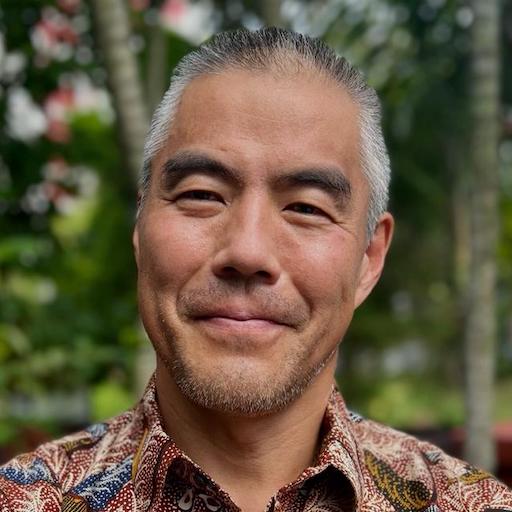
Richard Jeo directs Conservation International’s work in the Asia–Pacific region, overseeing strategies and outcomes in 13 countries. He guides the organization’s role in international and regional networks, as well as partnerships with both the private and public sectors to achieve the best outcomes for people and nature. He brings more than 20 years of experience working in conservation and conservation science across the globe to the role.
Prior to joining Conservation International, he served as the Montana state director for The Nature Conservancy, where he led programs that permanently protected more than 250,000 acres of critically important private lands. During his tenure at The Nature Conservancy, he played a leadership role in some of the largest successful conservation deals ever completed, including the 2009 Great Bear Rainforest agreements with Coastal First Nations in Canada that encompassed more than 21 million acres, as well as the $500-million Montana Legacy project that transferred more than 310,000 acres of forest to public ownership.
He received his doctor of philosophy degree in neuroscience from the California Institute of Technology in 1998, and continues to conduct conservation research. He is based in Singapore.

Xinying Tok has over 12 years’ experience working as a banker, an ESG (environmental, social, and governance) consultant, and a philanthropic grant maker in Southeast Asia and the People's Republic of China.
She has worked with governments, companies, large institutional investors, and philanthropic entities on issues like energy transition, electric mobility, clean cooling, ESG, and green finance to accelerate the low-carbon transition in Asia for the last 8 years.
She currently leads and grows the Carbon Trust team in Singapore to be the trusted and expert net zero guide for businesses, governments, and organizations across Southeast Asia.

Lavan Thiru is the executive director of Infrastructure Asia. He works closely with both the private and public sector in Singapore and Asia and the Pacific, focusing on project origination and development to enable more sustainable infrastructure in the region. He has been actively involved in various initiatives on infrastructure financing, including spending over a year at Clifford Capital, a specialist provider of structured finance solutions.
Thiru started his career in the Ministry of Finance overseeing fiscal policy formulation. Prior to his appointment at Infrastructure Asia in April 2021, he held various leadership roles at the Monetary Authority of Singapore (MAS) focused on financial market development. He was most recently the chief representative based in the MAS New York Representative Office.
He obtained his bachelor’s degree in business administration, with a specialization in financial analysis, with honors, and his master’s degree in accountancy, from Nanyang Technological University’s Nanyang Business School.
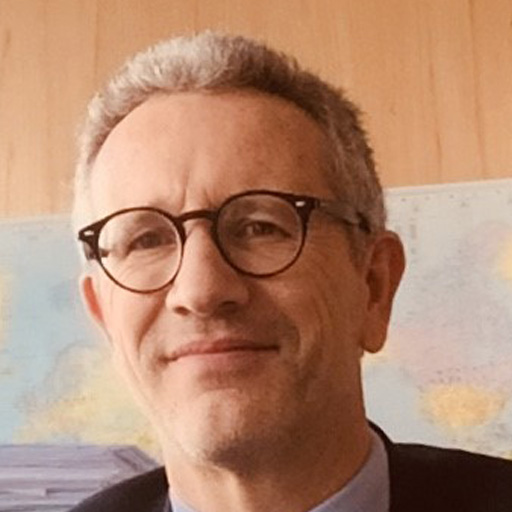
Yann Martres has worked his whole career for the French Development Agency (AFD) Group, mainly in operations, alternating between being assigned to headquarters and field positions in French overseas territories (French Guyana, Martinique, Reunion Island, French Polynesia), as well as in Madagascar, Viet Nam, People’s Republic of China (PRC), and Indonesia, with two external assignments (French Treasury Directorate, Socredo Bank).
He was appointed country director in Jakarta in September 2022, in charge of AFD operations in Indonesia. Prior to that, he was regional director for the PRC, based in Beijing. In 2015, he was director of group risk management department, in charge of all financial risks management, at the AFD headquarters. From 2011 to 2015, he was assigned at the Socredo Bank, AFD subsidiary in French Polynesia, as deputy chief executive officer and executive committee member.
Born in Bordeaux in 1968, Martres studied preparatory classes in Ècole normale supérieure, graduated from Institut d’études politiques de Bordeaux (political sciences) and University of Bordeaux (BA and MA in history).
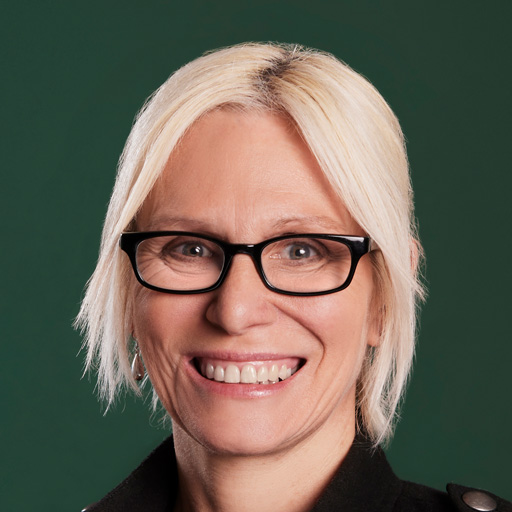
Sali Bache is the international policy and oceans lead at the Climateworks Centre, with a focus on the Asia and the Pacific region. For 2 decades, Bache has operated in an international governance setting.
She has advised on common property resource conservation across several regions, represented Australia in intergovernmental negotiations, and advised organizations including United Nations agencies, Asia–Pacific Economic Cooperation and the International Union for Conservation of Nature.
Her current work is focused on the ocean-climate nexus, and in this capacity, she sits on the United Nations Environment Programme GEO-7 expert scoping group and has led Monash University's engagement with the United Nations Framework Convention on Climate Change (UNFCCC) Ocean and Climate Change Dialogue.
Bache has published extensively in peak journals, authored numerous reports, and regularly presents at conferences. In addition to her appointment at Monash University, she is currently an associate of the Institute for Antarctic and Maritime Studies (IMAS) at the University of Tasmania.
Bache has a doctor of philosophy degree in public policy from the Australian National University, and a bachelor’s degree from Monash University. She also holds higher degree qualifications in environmental impact assessment and system dynamic modeling. She is also a member of the Australian Institute of Company Directors and a not-for-profit board member.
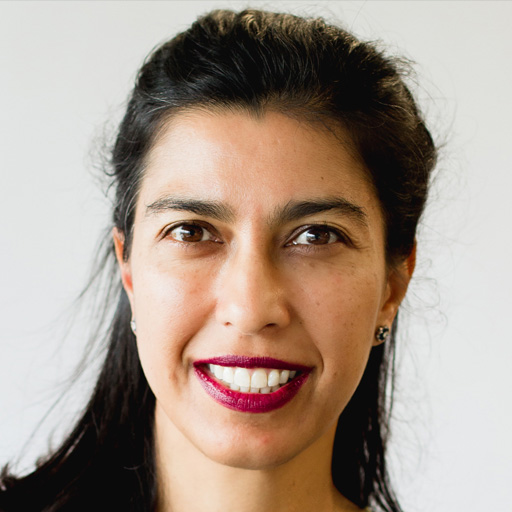
Nazmeera Moola is the chief sustainability officer at Ninety One. In this role, she oversees the firm-wide sustainability initiatives, including commercial imperatives, investment integration, and advocacy work.
She has been actively working with industry groups to develop a transition categorization framework to accelerate the growth of transition investment.
Previously, she was head of SA Investments, where she worked across the public and private strategies in Africa. Before that, she was co-head of SA and Africa Fixed Income.
Moola has covered the macroeconomy in emerging markets since 2000. She is passionate about making financial markets work to support development. Her remit has included the Emerging Africa Infrastructure Fund, which provides debt financing for infrastructure projects across Africa. She joined the firm in 2013 from Macquarie First South where she was head of macro strategy. She began her career as an economist at Merrill Lynch in South Africa and London.
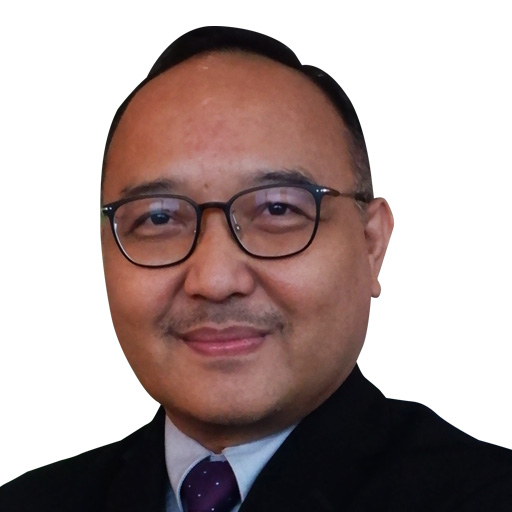
Prior to his current position as director for informatics empowerment at the Ministry of Communication and Informatics, Bonifasius Pudjianto held positions as chief technical officer and head of the Center for Data and Information at the Ministry of Tourism and Creative Economy, and as director for international marketing at the Indonesia Agency for Creative Economy. Currently, he is also a lecturer at MMSI Bina Nusantara University (BINUS).
He holds a doctor of philosophy degree in information and telecommunications technology from Korea Advanced Institute of Science and Technology (KAIST), and a master’s degree in mechanical engineering from the Bandung Institute of Technology.
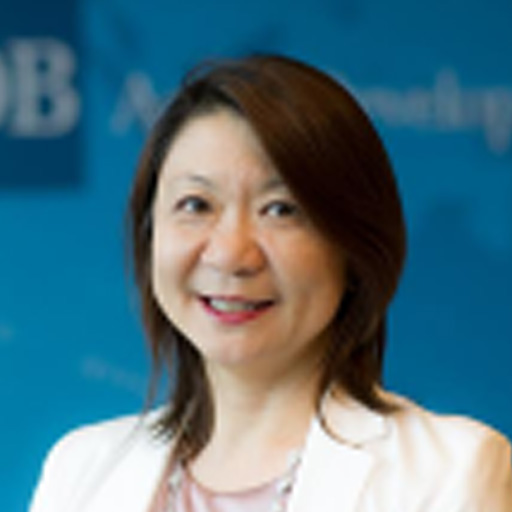
Ayako Inagaki is the director of the Human and Social Development Division at the Southeast Asia Department at the Asian Development Bank (ADB). She leads the planning, implementation, and supervision of ADB's lending and non-lending operations in education, health, and social protection.
As chair of ADB's Health Sector Group, Inagaki also oversees the preparation and implementation of the health sector group workplan. Inagaki has over 30 years of experience in the human development and social development sectors and has recently focused on emerging and cross-cutting issues affecting human and social development, that include digitalization, post-pandemic recovery, and climate adaptation and resilience.

David Ingles is an anchor for Bloomberg Television and Bloomberg Radio. He co-anchors “Bloomberg Markets: China Open” weekdays and concurrently also oversees markets and charts content for the Asia and the Pacific.
Based in Hong Kong, China, Ingles provides coverage of the major macroeconomic stories and trends that shape markets and affect businesses in the Asia-Pacific region. He also travels across the region to cover key stories and summits including the Asia-Pacific Economic Cooperation, G20, and World Economic Forum where he has interviewed some of the world’s top CEOs, political and economic leaders, tech entrepreneurs, and investors.
Prior to joining Bloomberg, Ingles was with CCTV News in Shanghai where he covered the Chinese financial markets and the country’s major economic reforms from the start of this decade. Before moving to the media industry, he spent several years in banking and financial services.
Ingles earned his bachelor’s degree in business from the Ateneo de Manila University, and an MBA degree in finance from the China Europe International Business School. He is fluent in English, Tagalog, and Mandarin.

Dina Gurning is a journalist with 7 years of experience covering a diverse range of topics. With a degree in journalism from a top university in Indonesia, Gurning’s passion for storytelling has taken her across places, reporting on everything from politics to entertainment. Now she expands her reporting expertise and delivers the latest economic and business news as a news anchor on CNBC Indonesia.
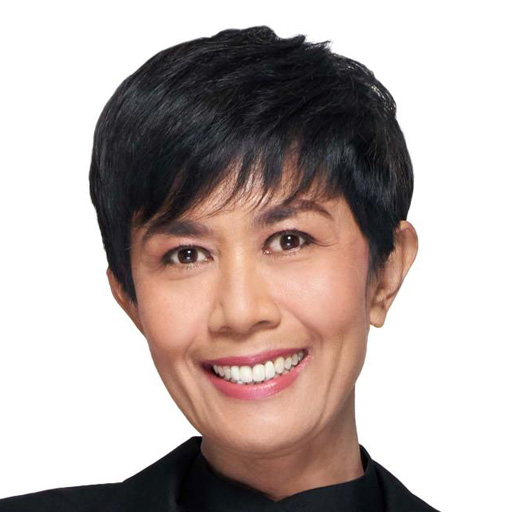
Desi Anwar is a director, senior anchor, and journalist at CNN Indonesia based in Jakarta, Indonesia. She hosts the talk show "Insight with Desi Anwar," featuring in-depth interviews with prominent figures, policymakers, experts, celebrities, and leaders.
Prior to joining CNN Indonesia in 2015, she was a senior anchor/journalist at Metro TV (2000–2015), Indonesia’s first 24-hour news channel. Among other programs, she hosted "Face 2 Face with Desi Anwar," where she interviewed heads of state and globally renowned personalities; and "Tea Time with Desi Anwar," which featured leaders and inspiring figures from Indonesia. Her career with Metro TV spanned 15 years.
Prior to that, she was co-founder of the online portal Astaga.com, and a columnist and editorial member of Indonesia’s English language daily The Indonesian Observer.
Anwar was also a regular columnist for the news magazine Tempo and the English dailies The Jakarta Globe and The Jakarta Post.
A prolific writer, she has published several books on photography and travel, and compilations of her articles and essays.
She began her career as anchor/reporter with RCTI, Indonesia’s first commercial television station, in 1990. She hosted daily news bulletins and served as executive producer and anchor of RCTI’s daily English-language news program “Indonesia Today,” and the weekly current affairs documentary “Liputan Khusus.” She was also a member of the presidential press corps and traveled extensively on foreign state visits and international summits during her years in RCTI.
Anwar was the recipient of Number One Press Holder from the Indonesian Journalists Association (2010) and awarded Senior Journalist (Wartawan Utama) status from the Indonesian Press Council (2011).
She is a fellow of the MIT leadership program in collaboration with UIDEAS, based in Boston, Massachusetts, and Indonesia. She was also named honorary fellow of the School of Oriental and African Studies (SOAS) of the University of London (2014) for her contribution to the growth of the media in Southeast Asia.
Anwar holds a bachelor’s degree from the University of Sussex, England, and a master’s degree from SOAS, University of London. She speaks Bahasa Indonesia, English, and French.
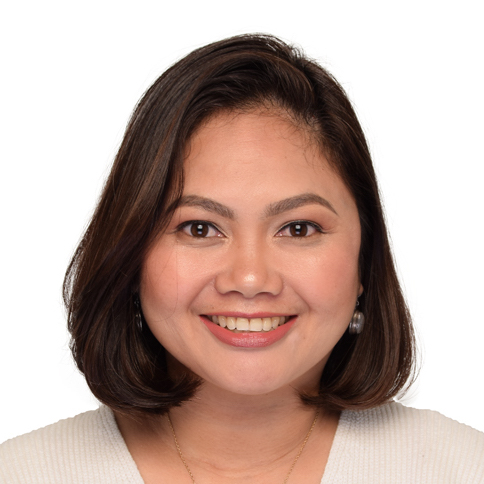
Ping Manongdo is the Philippines country director at Eco-Business. She leads partnerships and manages the end-to-end delivery of partner projects including editorial content, events, and research and consulting. Currently based in the Philippines, Manongdo is a sought-after speaker and moderator, training facilitator, and convenor of relevant conversations. She is currently completing the GRI 2021 Revised Universal Standards course. She holds a UK CPD certificate on climate bonds, and a course completion certificate on climate change science, communication, and action issued by Cornell University. She was a United Nations Framework Convention on Climate Change Fellow and a Thomson Reuters—Global Reporting Initiative Fellow on reporting on corporate impact. Manongdo is a seasoned client manager with over 15 years of experience working with hundreds of partners in the Asia–Pacific, the UK and Europe, and the Philippines across the energy, finance, agricultural, and consumer goods sectors. Previously, she was a broadcast journalist with GMA-7, one of the Philippines’ largest media companies.
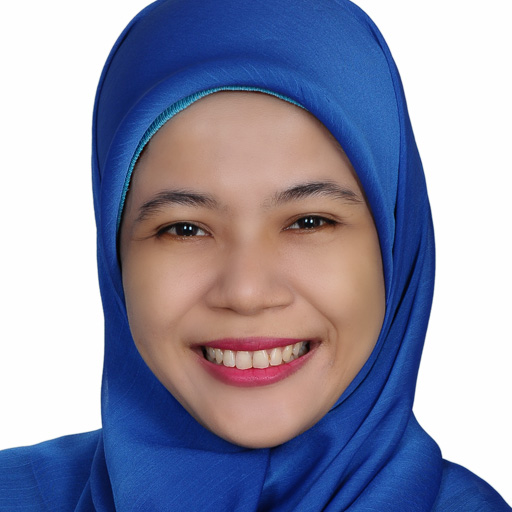
Adisti Sukma Sawitri is the managing editor at The Jakarta Post, the largest English language news publisher in Indonesia. As an editor and journalist with over 15 years of experience in media and news publishing, she has specialized in reporting on the environment, energy, and national politics. Since 2018, she has been involved in digital transformation initiatives at the Post. She is currently overseeing business news and newsroom development projects.
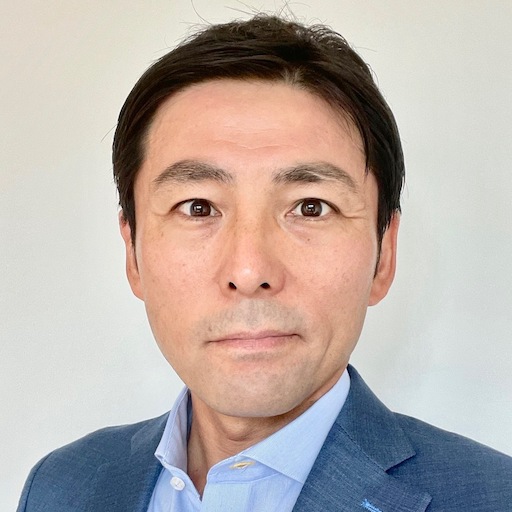
Akito Tanaka is Nikkei Asia's senior staff writer and chief business news correspondent, covering the technology sector from Singapore. He has over 20 years of reporting experience, and has been covering global companies in both Japan and the United States.
He is the recipient of the top prize for breaking news at the Asian Media Awards from the World Association of Newspapers and News Publishers for "After Ghosn—Nissan and Renault wrestle for control of their shared auto empire."
He graduated from Drake University in Des Moines, Iowa, with a bachelor’s degree in political science. He spent his childhood years in Lisbon, Portugal, attending the American International School.

Rebecca Tan is the Southeast Asia bureau chief for the Washington Post, responsible for covering a rapidly changing swath of the world that stretches from the Philippines to Bangladesh.
She is a Singapore native and has written about the energy transition, the Rohingya refugee crisis, Indonesia’s stadium stampede, and other major news topics since returning to the region in 2022.
She was previously a reporter on the local desk of the Post, where she was part of the team that won the 2022 Pulitzer Prize in public service for coverage of the 6 January 2021 attack on the US Capitol.

Nitia Anisa is a news anchor for the prime time news program at Kompas TV. She has 15 years of experience as a journalist, specializing in social and political issues.
Throughout her career, Anisa has interviewed many public figures, from Indonesia President Joko Widodo to Italian motorcycle racer Valentino Rossi.
Since 2016, Anisa has also worked as a news bulletin producer at Kompas TV and is responsible for her own weekly talk show, “NGOPI,” focused on women’s empowerment and environmental sustainability.
During the pandemic, she and her colleagues started a public speaking institute, Sepikul Indonesia, which offers media training for government officials and corporate executives.
Anisa speaks Norwegian fluently, and is now interested in learning Indonesian Sign Language.
